+JMJ+
In this e-weekly:
- MUST SEE WEBSITE: Institute of School and Parish Development (Catholic Website of the week)
- A Priest and Marytr for the Faith: Father Ragheed Ganni (Diocesan News and BEYOND)
- Illinois: Prayer in Public Schools (Helpful Hints for Life)
-CATHOLIC QUESTIONS AND CATHOLIC ANSWERS is BACK (see below)
BEST PARISH PRACTICE is also BACK! (see below
In this e-weekly:
- MUST SEE WEBSITE: Institute of School and Parish Development (Catholic Website of the week)
- A Priest and Marytr for the Faith: Father Ragheed Ganni (Diocesan News and BEYOND)
- Illinois: Prayer in Public Schools (Helpful Hints for Life)
-CATHOLIC QUESTIONS AND CATHOLIC ANSWERS is BACK (see below)
BEST PARISH PRACTICE is also BACK! (see below
Catholic Good News
Receiving the Gospel, Serving God and Neighbor
Catholic Schools
".they found him in the temple, sitting in the midst of the teachers,
listening to them and asking them questions." Luke 2:46
Receiving the Gospel, Serving God and Neighbor
Catholic Schools
".they found him in the temple, sitting in the midst of the teachers,
listening to them and asking them questions." Luke 2:46
Dear friends in Christ Jesus,
This month nearly 2 million children begin Catholic School. Many of us may have attended a Catholic school in our time. Many remember the dear nuns, or a wonderful lay teacher who gave fully of themselves, bringing his or her uniqueness to the classroom.
"Therefore every teacher of the law who has been instructed about the kingdom of heaven is like the owner of a house who brings out of his storeroom new treasures as well as old." Matthew 13:52
Regardless of who taught us and how we were educated, Catholic Schools have a value that is not found elsewhere because what they teach concerns God and heaven, our true home.
Therefore, he who rejects this instruction does not reject man but God, who gives you his Holy Spirit. 1 Thessalonians 4:8
Solid Catholic Schools and the education and formation they provide are needed now more than ever. Yet these blessed institutions do not happen by accident. They occur when the Father's blessing touches the honest, hard work of men and women of faith who love the Faith and children.
.do not be too hard on your children so they will become angry. Instruct them in their growing years with Christian teaching. -Ephesians 6:4
As millions of children continue to experience the blessings of Catholic Schools this month, let us give thanks to God for these schools, pray for them to bear fruit, and do all we can to support (as those who have went before us have supported) that which has brought so many blessings to this earth.
Peace and prayers in Jesus through Mary, loved by Saint Joseph,
Father Robert
P.S. This coming Sunday is the Twentieth Sunday of Ordinary Time. The readings can be found at: https://bible.usccb.org/bible/readings/082023.cfm
P.S.S. Sunday Readings with reflection available at the end of e-weekly.
This month nearly 2 million children begin Catholic School. Many of us may have attended a Catholic school in our time. Many remember the dear nuns, or a wonderful lay teacher who gave fully of themselves, bringing his or her uniqueness to the classroom.
"Therefore every teacher of the law who has been instructed about the kingdom of heaven is like the owner of a house who brings out of his storeroom new treasures as well as old." Matthew 13:52
Regardless of who taught us and how we were educated, Catholic Schools have a value that is not found elsewhere because what they teach concerns God and heaven, our true home.
Therefore, he who rejects this instruction does not reject man but God, who gives you his Holy Spirit. 1 Thessalonians 4:8
Solid Catholic Schools and the education and formation they provide are needed now more than ever. Yet these blessed institutions do not happen by accident. They occur when the Father's blessing touches the honest, hard work of men and women of faith who love the Faith and children.
.do not be too hard on your children so they will become angry. Instruct them in their growing years with Christian teaching. -Ephesians 6:4
As millions of children continue to experience the blessings of Catholic Schools this month, let us give thanks to God for these schools, pray for them to bear fruit, and do all we can to support (as those who have went before us have supported) that which has brought so many blessings to this earth.
Peace and prayers in Jesus through Mary, loved by Saint Joseph,
Father Robert
P.S. This coming Sunday is the Twentieth Sunday of Ordinary Time. The readings can be found at: https://bible.usccb.org/bible/readings/082023.cfm
P.S.S. Sunday Readings with reflection available at the end of e-weekly.
550. What are the essential forms of Christian prayer? (Catechism of the Catholic Church-CCC 2643-2644)
a) blessing and adoration
b) petition and intercession
c) thanksgiving and praise
d) all of the above
551. What is “blessing”? (CCC 2626-2627; 2645 )
a) a control over something
b) man’s response to God’s gifts
c) a multiplication of items
d) none of the above
552. How can adoration be defined? (CCC 2628)
Human Beings acknowledging that they belong to God.
a) True b) False
553. What are the different forms of the prayer of petition? (CCC 2629-2633; 2646)
a) those made to oneself
b) the prayer must include the acknowledgment of the angels
c) the worship of God
d) the first thing to ask for is the coming of the Kingdom
554. In what does the prayer of intercession consist? (CCC 2634-2636; 2647)
It must extend even to one’s enemies.
a) True b) False
555. When is thanksgiving given to God? (CCC 2637-2638; 2648 )
a) unceasingly
b) above all in celebrating the Holy Eucharist (Holy Mass)
c) every event in life is a reason
d) all of the above
556. What is the prayer of praise? (CCC 2639-2643; 2649)
That which recognizes the creature is more important that the Creator.
a) True b) False
a) blessing and adoration
b) petition and intercession
c) thanksgiving and praise
d) all of the above
551. What is “blessing”? (CCC 2626-2627; 2645 )
a) a control over something
b) man’s response to God’s gifts
c) a multiplication of items
d) none of the above
552. How can adoration be defined? (CCC 2628)
Human Beings acknowledging that they belong to God.
a) True b) False
553. What are the different forms of the prayer of petition? (CCC 2629-2633; 2646)
a) those made to oneself
b) the prayer must include the acknowledgment of the angels
c) the worship of God
d) the first thing to ask for is the coming of the Kingdom
554. In what does the prayer of intercession consist? (CCC 2634-2636; 2647)
It must extend even to one’s enemies.
a) True b) False
555. When is thanksgiving given to God? (CCC 2637-2638; 2648 )
a) unceasingly
b) above all in celebrating the Holy Eucharist (Holy Mass)
c) every event in life is a reason
d) all of the above
556. What is the prayer of praise? (CCC 2639-2643; 2649)
That which recognizes the creature is more important that the Creator.
a) True b) False
Catholic Term
Catholic School (from Late Latin catholicus, from Greek katholikos "universal, general"+ from Latin schola, from Greek scholē "discussion, lecture, school")
- an institution under the supervision of the Church whose corporate policy is to train the students in the Gospel message of salvation as taught by the teaching authority of the Catholic Church given to her by Jesus Christ and guaranteed by the Holy Spirit
In the words of the Second Vatican Council, "It is the special function of the Catholic school to develop in the school community an atmosphere animated by a spirit of liberty and charity based on the Gospel. It enables young people, while developing their own personality, to grow at the same time in that new life which has been given them at baptism. Finally it so orients the whole of human culture to the message of salvation that the knowledge which the pupils acquire of the world, of life and of men is illumined by faith. Thus, the Catholic school, taking into consideration as it should the conditions of an age of progress, prepares its pupils to contribute effectively to the welfare of the world of men and to work for the extension of the kingdom of God" (Declaration on Christian Education, 8).
Catholic School (from Late Latin catholicus, from Greek katholikos "universal, general"+ from Latin schola, from Greek scholē "discussion, lecture, school")
- an institution under the supervision of the Church whose corporate policy is to train the students in the Gospel message of salvation as taught by the teaching authority of the Catholic Church given to her by Jesus Christ and guaranteed by the Holy Spirit
In the words of the Second Vatican Council, "It is the special function of the Catholic school to develop in the school community an atmosphere animated by a spirit of liberty and charity based on the Gospel. It enables young people, while developing their own personality, to grow at the same time in that new life which has been given them at baptism. Finally it so orients the whole of human culture to the message of salvation that the knowledge which the pupils acquire of the world, of life and of men is illumined by faith. Thus, the Catholic school, taking into consideration as it should the conditions of an age of progress, prepares its pupils to contribute effectively to the welfare of the world of men and to work for the extension of the kingdom of God" (Declaration on Christian Education, 8).
"Lord, I believe, help my unbelief."
-prayer of Saint Augustine of Hippo
-prayer of Saint Augustine of Hippo
"Helpful Hints of Life"
ILLINOIS: Prayer In Public Schools
What you need to know about prayer in Public Schools: For Students- Every student has the constitutional right to pray in public schools at any time or place as long as it is not disruptive and does not interfere with classroom instruction.
For Teachers: Students can initiate prayer individually and in groups, in the public schools, however a teacher or administrator generally cannot.
What you need to know about the silent reflection and student prayer act in Illinois:
1-It's just a moment of silence.
2-It includes all religious and non-religious perspectives.
3- It is consistent with the U.S. Constitution.
"THE SUPREME COURT has held that students do not shed their constitutional rights at the schoolhouse door. The law enacted in Illinois comports with the Constitution, allowing for a daily routine of silent prayer or reflection in the classroom that does not endorse religion, yet accommodates free expression," was stated by Andy Norman of the Mauck & Baker law firm in Chicago, a Christian Legal Society.
In a very special way, parents share in the office of sanctifying "by leading a conjugal life in the Christian spirit and by seeing to the Christian education of their children."
-Catechism of the Catholic Church 2226
Institute of School and Parish Development
www.ispdconsulting.com
Bring People, Process, and Ministry to build the Kingdom of God. ISPD is your Catholic School Enrollment Solution for maintaining and/or increasing the quantity, quality, or diversity of your elementary or secondary Catholic school enrollment. These are the words with which they describe themselves. This site is excellent in that it takes a holistic, yet practical approach to the needs of Catholic Schools and Parishes today, and yet does not veer from the Gospel when it comes to meeting these needs with true charity and love of neighbor.
"The parish is the Eucharistic community and the heart of the liturgical life of Christian families; it is a privileged place for the catechesis of children and parents."
-Catechism of the Catholic Church 2226
www.ispdconsulting.com
Bring People, Process, and Ministry to build the Kingdom of God. ISPD is your Catholic School Enrollment Solution for maintaining and/or increasing the quantity, quality, or diversity of your elementary or secondary Catholic school enrollment. These are the words with which they describe themselves. This site is excellent in that it takes a holistic, yet practical approach to the needs of Catholic Schools and Parishes today, and yet does not veer from the Gospel when it comes to meeting these needs with true charity and love of neighbor.
"The parish is the Eucharistic community and the heart of the liturgical life of Christian families; it is a privileged place for the catechesis of children and parents."
-Catechism of the Catholic Church 2226
Best Parish Practices
ASK YOUR PRIEST TO HAVE A HOLY HOUR OR PERMISSION TO HAVE A HOLY HOUR
There are many things to pray for, especially all affected by the pandemic. People need ways to grow closer to God, His Church, and one another. One of the best ways to spiritually do this is a Holy Hour in church in front of the tabernacle or Jesus facing us in the monstrance. 'We look at Him, and He looks at us.'
BENEFITS:
You are face to face with Jesus. You come to Jesus in His House. You are in His Real Presence, Body, Blood, soul, and Divinity. Jesus said, "I say to you, if two of you agree on earth about anything for which they are to pray, it shall be granted to them by my heavenly Father." -Matthew 18:19 "So you could not keep watch with me for one hour?" -Jesus says (Matthew 26:40)
HOW?
Ask your Parish Priest to have the Holy Hour for and with you. Or ask a Deacon or Lay person to lead with permission of your Parish Priest. It can be before or after the Daily Mass. It can be of an evening or the best time for many of you to gather. You can be in front of the Blessed Sacrament. Priests praying with their people to Jesus is what we need now more than ever. You can offer Sacred Scripture, etc. More at: http://www.therealpresence.org/eucharst/pea/holyhour.html
The journey ended in the village of Fatima on May 13, where more than 650,000 pilgrims came from around the world. (photo: Courtesy photo / Patti Armstrong)Patti Maguire Armstrong FeaturesJuly 29, 2023We laud magnificent Catholic churches of old, yet often mourn the barely attended Masses. But a spring pilgrimage my husband and I made to Spain and Portugal, revealed a Church still very much alive. The journey ended in the village of Fatima on May 13, where more than 650,000 pilgrims came from around the world.
Among the crowd was a vibrant, youthful presence, with many young people on street corners passing out brochures announcing Pope Francis’ Aug. 2-6 visit to Lisbon, Portugal for World Youth Day (WYD). His trip includes a visit to the Shrine of Our Lady of Fatima via a helicopter from Lisbon to pray the Rosary with sick young people.
Fatima was a heavenly ending to the prelude of architectural masterpieces and many surprises. Our first surprise was that some of the daily Masses were often full or at least well-attended; each one a reminder of our universal Catholic Church.
According to Pew Research, much of the global Catholic population has shifted to Latin America, Africa and Asia. In 1910, 65% of all Catholics lived on the European continent; but a century later, that dropped to 24%, while Latin America now hosts 39%. But the Church remains tied to Europe with the largest shares of Catholics mostly in southern and central Europe. Poland (87%), Italy (78%) and Portugal (77%) identify as Catholic, as well as a majority in Spain (60%).
We arrived first in the Azores, an autonomous region of Portugal about 870 miles west of Lisbon and 3,500 miles from Tampa, Florida, via a cruise ship as a celebration of my husband Mark’s retirement. Census numbers show that 90% of residents are Catholic in these islands.
Here, we discovered Mother Teresa of the Azores and “Lord Holy Christ of the Miracles.” Today, most Catholics think of Calcutta’s Mother Teresa; but there was also Mother Teresa de Jesus da Anunciada (1658-1738). She was known for serving the poor and had an intense love for Jesus, the Eucharist and the Blessed Mother. The cause for her canonization was initiated in 1738 but stalled until its revival a few years ago.
Among the crowd was a vibrant, youthful presence, with many young people on street corners passing out brochures announcing Pope Francis’ Aug. 2-6 visit to Lisbon, Portugal for World Youth Day (WYD). His trip includes a visit to the Shrine of Our Lady of Fatima via a helicopter from Lisbon to pray the Rosary with sick young people.
Fatima was a heavenly ending to the prelude of architectural masterpieces and many surprises. Our first surprise was that some of the daily Masses were often full or at least well-attended; each one a reminder of our universal Catholic Church.
According to Pew Research, much of the global Catholic population has shifted to Latin America, Africa and Asia. In 1910, 65% of all Catholics lived on the European continent; but a century later, that dropped to 24%, while Latin America now hosts 39%. But the Church remains tied to Europe with the largest shares of Catholics mostly in southern and central Europe. Poland (87%), Italy (78%) and Portugal (77%) identify as Catholic, as well as a majority in Spain (60%).
We arrived first in the Azores, an autonomous region of Portugal about 870 miles west of Lisbon and 3,500 miles from Tampa, Florida, via a cruise ship as a celebration of my husband Mark’s retirement. Census numbers show that 90% of residents are Catholic in these islands.
Here, we discovered Mother Teresa of the Azores and “Lord Holy Christ of the Miracles.” Today, most Catholics think of Calcutta’s Mother Teresa; but there was also Mother Teresa de Jesus da Anunciada (1658-1738). She was known for serving the poor and had an intense love for Jesus, the Eucharist and the Blessed Mother. The cause for her canonization was initiated in 1738 but stalled until its revival a few years ago.
Mother Teresa of the Azores and “Lord Holy Christ of the Miracles.”(Photo: Courtesy photo)
She began a devotion to Lord Holy Christ of the Miracles that has spread to other parts of the world. Beginning in 1700, Mother Teresa orchestrated processions to petition God to calm the many earthquakes on the volcanic islands. She processed with a wooden bust of the image the Ecce Homo (Latin for “Behold the Man,” the words of Pontius Pilate in John 19:5).
During the procession of Dec. 17, 1713, the earthquakes had been unceasing, but when the statue fell from the stretcher it was carried on, the earth’s rumblings suddenly ceased. The procession continued with ecstatic praise. The statue became known as Lord Holy Christ of Miracles, displayed in the Convent of Our Lady of Hope and brought out for the annual May 14 procession.
An Unfinished Cathedral
After traveling through the Strait of Gibraltar to the ancient coastal city of Malaga in southern Spain, we visited the Cathedral of the Incarnation, which was never finished due to the American Revolution. This massive Baroque-Renaissance cathedral, constructed from 1582 to 1782 features 15 side chapels, a 125-foot domed ceiling, beautiful statues, stained glass and paintings. But it is missing one of two 300-foot planned bell towers due to the American Revolution.
Our tour guide explained, “Spain did not want the colonists to be treated like slaves.” The Malaga-born military leader, Field Marshall Bernardo de Galvez, led an armada and soldiers to help the American patriots fight against the British. He brought with him 400,000-gold realis, which would be worth $20 million today, money originally intended for the second steeple.
Galvez became a hero in both Spain and the U.S. The city of Galveston, Texas, is named for him. Each summer, Malaga, Spain, celebrates the Fourth of July, remembering Field Marshall Galvez and America’s Independence Day.
Chapel of the Holy Chalice
In Valencia, Spain, at the Valencia Cathedral of the Assumption of Our Lady, we encountered what is claimed to be the Holy Chalice — the cup Jesus used during the Last Supper. This claim is disputed, but the Vatican has designated Valencia as a “City of the Holy Grail.” Pope John Paul II and Pope Benedict XVI visited there and used the chalice during Mass. It is believed to have been taken by St. Peter to Rome, then later taken by a Vatican soldier to Spain in the first century. During the Muslim occupation of Spain, it was hidden for decades and reemerged during the14th century. Between the cathedral and the church right next door, Our Lady of the Good Remedies, there are 13 Masses offered a day.
She began a devotion to Lord Holy Christ of the Miracles that has spread to other parts of the world. Beginning in 1700, Mother Teresa orchestrated processions to petition God to calm the many earthquakes on the volcanic islands. She processed with a wooden bust of the image the Ecce Homo (Latin for “Behold the Man,” the words of Pontius Pilate in John 19:5).
During the procession of Dec. 17, 1713, the earthquakes had been unceasing, but when the statue fell from the stretcher it was carried on, the earth’s rumblings suddenly ceased. The procession continued with ecstatic praise. The statue became known as Lord Holy Christ of Miracles, displayed in the Convent of Our Lady of Hope and brought out for the annual May 14 procession.
An Unfinished Cathedral
After traveling through the Strait of Gibraltar to the ancient coastal city of Malaga in southern Spain, we visited the Cathedral of the Incarnation, which was never finished due to the American Revolution. This massive Baroque-Renaissance cathedral, constructed from 1582 to 1782 features 15 side chapels, a 125-foot domed ceiling, beautiful statues, stained glass and paintings. But it is missing one of two 300-foot planned bell towers due to the American Revolution.
Our tour guide explained, “Spain did not want the colonists to be treated like slaves.” The Malaga-born military leader, Field Marshall Bernardo de Galvez, led an armada and soldiers to help the American patriots fight against the British. He brought with him 400,000-gold realis, which would be worth $20 million today, money originally intended for the second steeple.
Galvez became a hero in both Spain and the U.S. The city of Galveston, Texas, is named for him. Each summer, Malaga, Spain, celebrates the Fourth of July, remembering Field Marshall Galvez and America’s Independence Day.
Chapel of the Holy Chalice
In Valencia, Spain, at the Valencia Cathedral of the Assumption of Our Lady, we encountered what is claimed to be the Holy Chalice — the cup Jesus used during the Last Supper. This claim is disputed, but the Vatican has designated Valencia as a “City of the Holy Grail.” Pope John Paul II and Pope Benedict XVI visited there and used the chalice during Mass. It is believed to have been taken by St. Peter to Rome, then later taken by a Vatican soldier to Spain in the first century. During the Muslim occupation of Spain, it was hidden for decades and reemerged during the14th century. Between the cathedral and the church right next door, Our Lady of the Good Remedies, there are 13 Masses offered a day.
The Holy Chalice. (Photo: Courtesy photo)
Sagrada Família Basilica
A concentration of so much history and beauty can dull a traveler’s sense of wonder, but in Barcelona, our awe was reawakened by the Sagrada Família (Holy Family) Basilica. The otherworldly, Gothic church began construction in 1882, and it is hoped to be completed in 2026, the centennial of the death of its creator Antoni Gaudí, who was declared a “Servant of God” in 2010.
Pope Benedict XVI designated this church as a minor basilica on Nov. 7, 2010, during a visit, praising it as “a space of beauty, faith and hope which leads man to an encounter with him who is truth and beauty itself.”
Sagrada Família Basilica
A concentration of so much history and beauty can dull a traveler’s sense of wonder, but in Barcelona, our awe was reawakened by the Sagrada Família (Holy Family) Basilica. The otherworldly, Gothic church began construction in 1882, and it is hoped to be completed in 2026, the centennial of the death of its creator Antoni Gaudí, who was declared a “Servant of God” in 2010.
Pope Benedict XVI designated this church as a minor basilica on Nov. 7, 2010, during a visit, praising it as “a space of beauty, faith and hope which leads man to an encounter with him who is truth and beauty itself.”
The otherworldly, Gothic church began construction in 1882, and it is hoped to be completed in 2026, the centennial of the death of its creator Antoni Gaudí, who was declared a “Servant of God” in 2010. (Photo: Courtesy photo)The completion of all 18 spires will make Sagrada Família the tallest church in the world — 36 feet taller than the current record holder, Ulm Minster, a Lutheran church in Germany. Gaudí’s unconventional carvings in the building’s exterior reflect his love of nature, such as an evergreen tree and an assortment of fruit and wildlife. There are three exterior façades with scenes featuring the Nativity, Passion and Glory of God. Inside, the nave is lined with tree-like columns stretching to the sky into a stone canopy. The surrounding stained-glass windows dapple the walls with shimmering light to portray nature’s natural rhythms.
Eric Fleishman, a Lutheran visiting with his wife and young daughter from Wisconsin, commented to us, “It’s incredible. Being an architect myself, Gaudí’s creativity is such an inspiration. I work on churches and schools, so coming here is encouraging for what I do.”
Fleishman also noted being inspired by Gaudí’s focus and faith, trusting that the money would come. The church is not a parish church and takes no money from the diocese. It is completely funded by private donations and is now supported through the tours.
Time Out
While in Barcelona, a pain in my abdomen that began during the cruise gradually worsened, and I ended up in a hospital for five days with diverticulitis. Pilgrimages are about transformations, and so it was for me, hooked up to antibiotics.
Rather than sit around, I insisted Mark continue to Zaragosa. Before he left, Mark called the church across the street for me, and three different priests visited and brought Holy Communion and anointed me — another powerful testimony to the blessing of our universal Church.
Mark continued to Zaragoza, Spain, the site of the first Marian apparitions, Our Lady of the Pillar. Mary, while still living in Jerusalem, mystically bilocated to the apostle James the Greater in A.D. 40; St. James was preaching there to Romans, Greeks and Jews.
Visitors can still touch the pillar of stone Our Lady appeared on, now in the Cathedral-Basilica of Our Lady of Pillar.
Eric Fleishman, a Lutheran visiting with his wife and young daughter from Wisconsin, commented to us, “It’s incredible. Being an architect myself, Gaudí’s creativity is such an inspiration. I work on churches and schools, so coming here is encouraging for what I do.”
Fleishman also noted being inspired by Gaudí’s focus and faith, trusting that the money would come. The church is not a parish church and takes no money from the diocese. It is completely funded by private donations and is now supported through the tours.
Time Out
While in Barcelona, a pain in my abdomen that began during the cruise gradually worsened, and I ended up in a hospital for five days with diverticulitis. Pilgrimages are about transformations, and so it was for me, hooked up to antibiotics.
Rather than sit around, I insisted Mark continue to Zaragosa. Before he left, Mark called the church across the street for me, and three different priests visited and brought Holy Communion and anointed me — another powerful testimony to the blessing of our universal Church.
Mark continued to Zaragoza, Spain, the site of the first Marian apparitions, Our Lady of the Pillar. Mary, while still living in Jerusalem, mystically bilocated to the apostle James the Greater in A.D. 40; St. James was preaching there to Romans, Greeks and Jews.
Visitors can still touch the pillar of stone Our Lady appeared on, now in the Cathedral-Basilica of Our Lady of Pillar.
Mark continued to Zaragoza, Spain, the site of the first Marian apparitions, Our Lady of the Pillar.(Photo: Courtesy photo)Mark came back for me, and after I recovered, we went on to Madrid at a slower pace, but continuing, nonetheless. We visited Almudena Cathedral, completed after 110 years of construction and consecrated in 1993 by Pope St. John Paul II. We attended Mass at the Church of the Holy Cross near our apartment and witnessed a devotion to St. Jude on Wednesday nights. Following Mass, the Rosary and other prayers are said, and people line up around the block to venerate a statue of St. Jude and ask for intercessions.
Across from our apartment, we stumbled upon another Mass at the Convent of St. Jerome, founded in 1607, where perpetual adoration has taken place since 1896. It’s an unassuming building although beautiful inside. Nuns worship from behind a grill from the balcony.
Miracle in NazaréNext, it was on to Nazaré, Portugal. We met up with two of our 10 children from Bismarck, North Dakota, and a third from Guatamala, as well as a brother of mine from Prague and Mark’s brother who recently moved to Nazaré. Located 40 minutes west of Fatima on the Atlantic coast, Nazaré has been a pilgrimage site for centuries. In 714, a Madonna wood carving believed to have been sculpted by St. Joseph was brought there for safety and placed in a small chapel overlooking the cliffs.
On Sept. 14,1182, the Knight Templar Fuas Roupinho came to pray. He was chasing a deer on horseback on a misty September morning. When the deer jumped off the cliff, the knight’s horse was about to follow. The knight cried out for the Madonna’s divine help. His horse stopped in a supernatural fashion, thus sparing Roupinho certain death. A horseshoe fused into a rock at the top of the cliff remained. It can now be seen in the small chapel on that spot.
Across from our apartment, we stumbled upon another Mass at the Convent of St. Jerome, founded in 1607, where perpetual adoration has taken place since 1896. It’s an unassuming building although beautiful inside. Nuns worship from behind a grill from the balcony.
Miracle in NazaréNext, it was on to Nazaré, Portugal. We met up with two of our 10 children from Bismarck, North Dakota, and a third from Guatamala, as well as a brother of mine from Prague and Mark’s brother who recently moved to Nazaré. Located 40 minutes west of Fatima on the Atlantic coast, Nazaré has been a pilgrimage site for centuries. In 714, a Madonna wood carving believed to have been sculpted by St. Joseph was brought there for safety and placed in a small chapel overlooking the cliffs.
On Sept. 14,1182, the Knight Templar Fuas Roupinho came to pray. He was chasing a deer on horseback on a misty September morning. When the deer jumped off the cliff, the knight’s horse was about to follow. The knight cried out for the Madonna’s divine help. His horse stopped in a supernatural fashion, thus sparing Roupinho certain death. A horseshoe fused into a rock at the top of the cliff remained. It can now be seen in the small chapel on that spot.
A horseshoe fused into a rock at the top of the cliff remained.
(Photo: Courtesy photo)This miracle inspired King Alfonso I of Portugal to construct the Sanctuary of Our Lady of Nazaré, on a cliff overlooking the city. It was finished in 1377. Atop the altar, visitors can still venerate the sacred St. Joseph-carved Madonna.
Fatima and the ‘Miracle of the Sun’Then it was on to Fatima, with hundreds of thousands of people arriving during the days leading up to the feast on May 13. Here, in 1917, Our Lady appeared to three shepherd children: 10-year-old Lucia dos Santos and her cousins Jacinta Marto, 7, and Francisco Marto, 8. Their tombs are now in the Shrine of Fatima’s main church, the Basilica of Our Lady of the Rosary.
(Photo: Courtesy photo)This miracle inspired King Alfonso I of Portugal to construct the Sanctuary of Our Lady of Nazaré, on a cliff overlooking the city. It was finished in 1377. Atop the altar, visitors can still venerate the sacred St. Joseph-carved Madonna.
Fatima and the ‘Miracle of the Sun’Then it was on to Fatima, with hundreds of thousands of people arriving during the days leading up to the feast on May 13. Here, in 1917, Our Lady appeared to three shepherd children: 10-year-old Lucia dos Santos and her cousins Jacinta Marto, 7, and Francisco Marto, 8. Their tombs are now in the Shrine of Fatima’s main church, the Basilica of Our Lady of the Rosary.
Procession in Fatima with throngs of pilgrims.(Photo: Courtesy photo)“I am the Lady of the Rosary,” she told the children. She asked them to pray, do penance, make sacrifices to save sinners and to return to the Cova da Iria during the next five months on the 13th. Month after month, the crowds grew larger. At the last apparition, it was estimated to be anywhere from 75,000 to 100,000 people. Regardless of preconceived beliefs, everyone saw the miracle where the rain stopped, clouds parted and for 12 minutes, the sun seemed to leave its orbit and spin, throwing off colors of light scattered across the sky. Then a strange breeze swept through and instantly dried soaked clothing and the wet ground.
During this, the children saw a vision, described by Sister Lúcia in “Letter From Sister Lúcia to Her Bishop, Dec. 8, 1941,” “When Our Lady disappeared in the immense distance of the sky, next to the sun, we saw St. Joseph holding the Child Jesus and Our Lady dressed in white with a blue mantle. St. Joseph and the Child seemed to be blessing the world, making the Sign of the Cross.”
Pope Francis canonized Jacinta and Francisco on May 13, 2017. Sister Lúcia died Feb. 13, 2005, at age of 97. In a decree signed this past June 22, Pope Francis declared her “Venerable.”
Fatima was a perfect ending of our pilgrimage. We had experienced our Catholic faith that threads throughout history and still shines today, imperfect yet perfect, both waning and growing, and still beating in the hearts of Catholics throughout the world.
A Priest and Martyr for the Faith: The Cause for Beatification of Father Ragheed Ganni
Archbishop Warda stressed that the martyred Father Ragheed was very close to the youth.
Father Ragheed Ganni (photo: Courtesy photo / Chaldean Patriarchate)
Rody Sher/CNAWorldAugust 19It has been fifteen years since the martyrdom of Father Ragheed Ganni, the Chaldean priest of the Holy Spirit parish and the secretary of the Bishop of Mosul, the martyr Archbishop Faraj Rahho. Father Ganni may soon be given the title ‘blessed.’
Father Ganni, considered one of the most influential martyrs of the Catholic Church in Iraq, was killed by fanatical terrorists on June 3, 2007, after celebrating the Divine Liturgy in the Church of the Holy Spirit in Mosul.
“Simplicity of spirit and zeal for the faith.” These words were used to describe Father Ganni by the Chaldean Archbishop of Erbil, Bishop Bashar Warda, when he met him in 1997 in Ireland. Archbishop Warda continued: “When Father Ragheed was asked to volunteer to serve the pilgrims who came to pray and seek advice at the Shrine of Love Derg, he accepted the invitation and brought happiness and joy to all of our hearts.”
Archbishop Warda stressed that the martyred Father Ragheed was very close to the youth. He always accompanied them and conducted activities that motivated them and helped them strengthen their spirituality and ecclesiastical knowledge. He added: “I have always admired his leadership and his closeness to them. He was a father, a brother, and an educator for all of them.”
The Life of Father Ragheed Ganni
Father Ragheed was born in Mosul in 1972, where he completed his university studies, graduating with a bachelor's degree in civil engineering. He had loved the Church since childhood and learned its liturgical rites and melodies. He decided to devote his life to the Church in the sacred priesthood. . Bishop Georgios Jarmo sent him to Rome in 1996 to begin his priestly formation journey. He studied at the Irish Institute and continued his studies in theology at the University of Saint Thomas Aquinas.
He had a strong desire to return to Mosul and serve the believers and members of his Church who were in tribulation due to the persecution of extremist Islamic groups since 2003. His wish was granted; he returned to Mosul and committed himself to serving its people, in addition to teaching at the Babylon College of Philosophy and Theology, in 2004.
During this period, the city of Mosul suffered from campaigns of intimidation, kidnapping, and killing of Christians, in addition to bombing many churches and monasteries. Many people were forced to seek refuge and escape to other cities and villages in northern Iraq, and many families were forced to migrate to other countries, fearing for their lives and their faith.
These challenges were not an obstacle to Father Ragheed, who continued all pastoral activities, celebrated Masses in the various churches in his diocese, and provided moral and spiritual support to his church children even in the most challenging times.
Father Ragheed constantly said: “The terrorists want to end our lives, but the Eucharist gives us life. When I hold the cup of the Eucharist in my hands, I say: This is the Lamb of God who takes away the sins of the world. I feel His power overwhelm me. I hold the cup in my hand, but He is the one who holds me and us all, defying the terrorists and making us united in His boundless love.”
He emphasized more than once in his conversation with those close to him that he would continue to spread the message that obligated him to be a missionary in the name of Christ, saying: “The terrorists think that they are killing us physically or scaring us spiritually with their brutal methods. Many Christian families have fled because of the abuses committed against them, but the paradox is that we have come to realize, through the violence of terrorists, that the dead and risen Christ gives us life. This gives us hope and helps us survive every day.”
Rody Sher/CNAWorldAugust 19It has been fifteen years since the martyrdom of Father Ragheed Ganni, the Chaldean priest of the Holy Spirit parish and the secretary of the Bishop of Mosul, the martyr Archbishop Faraj Rahho. Father Ganni may soon be given the title ‘blessed.’
Father Ganni, considered one of the most influential martyrs of the Catholic Church in Iraq, was killed by fanatical terrorists on June 3, 2007, after celebrating the Divine Liturgy in the Church of the Holy Spirit in Mosul.
“Simplicity of spirit and zeal for the faith.” These words were used to describe Father Ganni by the Chaldean Archbishop of Erbil, Bishop Bashar Warda, when he met him in 1997 in Ireland. Archbishop Warda continued: “When Father Ragheed was asked to volunteer to serve the pilgrims who came to pray and seek advice at the Shrine of Love Derg, he accepted the invitation and brought happiness and joy to all of our hearts.”
Archbishop Warda stressed that the martyred Father Ragheed was very close to the youth. He always accompanied them and conducted activities that motivated them and helped them strengthen their spirituality and ecclesiastical knowledge. He added: “I have always admired his leadership and his closeness to them. He was a father, a brother, and an educator for all of them.”
The Life of Father Ragheed Ganni
Father Ragheed was born in Mosul in 1972, where he completed his university studies, graduating with a bachelor's degree in civil engineering. He had loved the Church since childhood and learned its liturgical rites and melodies. He decided to devote his life to the Church in the sacred priesthood. . Bishop Georgios Jarmo sent him to Rome in 1996 to begin his priestly formation journey. He studied at the Irish Institute and continued his studies in theology at the University of Saint Thomas Aquinas.
He had a strong desire to return to Mosul and serve the believers and members of his Church who were in tribulation due to the persecution of extremist Islamic groups since 2003. His wish was granted; he returned to Mosul and committed himself to serving its people, in addition to teaching at the Babylon College of Philosophy and Theology, in 2004.
During this period, the city of Mosul suffered from campaigns of intimidation, kidnapping, and killing of Christians, in addition to bombing many churches and monasteries. Many people were forced to seek refuge and escape to other cities and villages in northern Iraq, and many families were forced to migrate to other countries, fearing for their lives and their faith.
These challenges were not an obstacle to Father Ragheed, who continued all pastoral activities, celebrated Masses in the various churches in his diocese, and provided moral and spiritual support to his church children even in the most challenging times.
Father Ragheed constantly said: “The terrorists want to end our lives, but the Eucharist gives us life. When I hold the cup of the Eucharist in my hands, I say: This is the Lamb of God who takes away the sins of the world. I feel His power overwhelm me. I hold the cup in my hand, but He is the one who holds me and us all, defying the terrorists and making us united in His boundless love.”
He emphasized more than once in his conversation with those close to him that he would continue to spread the message that obligated him to be a missionary in the name of Christ, saying: “The terrorists think that they are killing us physically or scaring us spiritually with their brutal methods. Many Christian families have fled because of the abuses committed against them, but the paradox is that we have come to realize, through the violence of terrorists, that the dead and risen Christ gives us life. This gives us hope and helps us survive every day.”
The Martyrdom of Father Ragheed Ganni
The threats directed at Father Ragheed continued because of the various activities he led with the youth in the Church. His ministry angered the terrorist groups in Mosul, and death threats began to emerge.
On the third Sunday of June 2007, the terrorists arrested him after he celebrated the Divine Liturgy with three deacons: Basman Yusef Daoud, Waheed Hanna Isho, and Ghassan Essam Bidawid. At that time, the terrorists asked him: “Did we not ask you not to open the church for prayer?” He replied, “How can I close the House of God in the face of worshipers?”
These were the last words uttered by Father Ragheed Ganni, days before he became a martyr for Christ and his Church.
The Last Prayer of Father Ganni
Father Ragheed Ganni realized that the Islamic terrorists would not let him live, given his disobedience to their orders and his continued celebration of the liturgy in Mosul, so he wrote his last prayer on October 12, 2006:
"Lord, I don't think they will look at my prayer
Although it was a pessimistic prayer, everyone knew me as an optimist.
And perhaps, for a moment, they forgot. They wondered why I was so optimistic,
They have seen me smiling, braver and stronger in the most difficult situations.
But, when they remember the times of trouble I lived,
and the hardships I've been through,
The ones that showed how weak I am and how capable you are
You revealed how fragile I am and how strong you are,
They will know that I, my hope, have always spoken of you
Because I knew you, and you were the reason for my optimism
Even when I knew my death was near,
But let me be with you now,
May I please put it before you,
You know better than I what time we are living.
I am a human being and know how weak a person is.
I want you to be my strength so that I will not allow anyone to insult me in the priesthood that I hold.
Help me not to weaken and surrender myself in fear for my life
Because I want to die for you, to live with you and with you.
Now I am ready to meet you; help me not to lose time for trial
Because I told you that I knew man, but I also said that I knew you
Oh, my strength, my power, my hope."
The threats directed at Father Ragheed continued because of the various activities he led with the youth in the Church. His ministry angered the terrorist groups in Mosul, and death threats began to emerge.
On the third Sunday of June 2007, the terrorists arrested him after he celebrated the Divine Liturgy with three deacons: Basman Yusef Daoud, Waheed Hanna Isho, and Ghassan Essam Bidawid. At that time, the terrorists asked him: “Did we not ask you not to open the church for prayer?” He replied, “How can I close the House of God in the face of worshipers?”
These were the last words uttered by Father Ragheed Ganni, days before he became a martyr for Christ and his Church.
The Last Prayer of Father Ganni
Father Ragheed Ganni realized that the Islamic terrorists would not let him live, given his disobedience to their orders and his continued celebration of the liturgy in Mosul, so he wrote his last prayer on October 12, 2006:
"Lord, I don't think they will look at my prayer
Although it was a pessimistic prayer, everyone knew me as an optimist.
And perhaps, for a moment, they forgot. They wondered why I was so optimistic,
They have seen me smiling, braver and stronger in the most difficult situations.
But, when they remember the times of trouble I lived,
and the hardships I've been through,
The ones that showed how weak I am and how capable you are
You revealed how fragile I am and how strong you are,
They will know that I, my hope, have always spoken of you
Because I knew you, and you were the reason for my optimism
Even when I knew my death was near,
But let me be with you now,
May I please put it before you,
You know better than I what time we are living.
I am a human being and know how weak a person is.
I want you to be my strength so that I will not allow anyone to insult me in the priesthood that I hold.
Help me not to weaken and surrender myself in fear for my life
Because I want to die for you, to live with you and with you.
Now I am ready to meet you; help me not to lose time for trial
Because I told you that I knew man, but I also said that I knew you
Oh, my strength, my power, my hope."
After defeating pagan warriors in a fight for his crown, Pope Sylvester II granted the “Sacred Crown” to King Stephen of Hungary. On Christmas Day in the year 1000, the future patron saint became the King of Hungary.
King Stephen then dedicated his country to Christian principles. According to St. John Paul II, the king did not consider his crown an honor, “but a service.”
Pope St. John Paul II’s words describing this epic moment in history:“At the dawn of the millennium, the figure of King St. Stephen stands out.
“He founded the State on the firm rock of Christian values, and for this reason wanted to receive the royal crown from the hands of my Predecessor, Pope Sylvester II. Thus the Hungarian nation was founded in deep unity with the Chair of Peter and bound by close ties to other European countries, which shared the same Christian culture.
“This culture was the vital sap flowing through the fibres of the developing plant, which assured its growth and vigor, and prepared the extraordinary flourishing that was to come.”
St. Stephen held a great devotion to the Blessed Virgin Mary. He built many churches in her honor.
On the day of his death in 1038, King St. Stephen dedicated his country to the Blessed Virgin Mary on the Solemnity of the Assumption. He requested that the state and Church leaders “protect and spread the Catholic faith.”
He dedicated one of his final prayers to the Blessed Virgin Mary:“To thee, O Queen of heaven, and to thy guardianship, I commend the holy Church, all the bishops and the clergy, the whole kingdom, its rulers and inhabitants; but before all, I commend my soul to thy care.”
Ambassador of Hungary to the Holy See Eduard Habsburg brought attention to the Aug. 20th celebration in a post accompanied by a photo of Our Lady with St. Stephen.
Here’s the photo below:
King Stephen then dedicated his country to Christian principles. According to St. John Paul II, the king did not consider his crown an honor, “but a service.”
Pope St. John Paul II’s words describing this epic moment in history:“At the dawn of the millennium, the figure of King St. Stephen stands out.
“He founded the State on the firm rock of Christian values, and for this reason wanted to receive the royal crown from the hands of my Predecessor, Pope Sylvester II. Thus the Hungarian nation was founded in deep unity with the Chair of Peter and bound by close ties to other European countries, which shared the same Christian culture.
“This culture was the vital sap flowing through the fibres of the developing plant, which assured its growth and vigor, and prepared the extraordinary flourishing that was to come.”
St. Stephen held a great devotion to the Blessed Virgin Mary. He built many churches in her honor.
On the day of his death in 1038, King St. Stephen dedicated his country to the Blessed Virgin Mary on the Solemnity of the Assumption. He requested that the state and Church leaders “protect and spread the Catholic faith.”
He dedicated one of his final prayers to the Blessed Virgin Mary:“To thee, O Queen of heaven, and to thy guardianship, I commend the holy Church, all the bishops and the clergy, the whole kingdom, its rulers and inhabitants; but before all, I commend my soul to thy care.”
Ambassador of Hungary to the Holy See Eduard Habsburg brought attention to the Aug. 20th celebration in a post accompanied by a photo of Our Lady with St. Stephen.
Here’s the photo below:
Hungary’s “birthday”, the 20th of August, then King Stephen offering the crown he received from the Pope to Our Lady who is, henceforth, queen of Hungary,” said Habsburg.
St. Stephen’s Day falls every year on Aug. 20. Hungary considers this day a public holiday, or the “birthday” of Hungary, “celebrating the foundation of the Hungarian state more than 1000 years ago.” It is comparable to July 4 in the United States.
Here’s a video explaining Hungary’s amazing Catholic history:
https://youtu.be/r-TSd0HqakA
St. Stephen’s Day falls every year on Aug. 20. Hungary considers this day a public holiday, or the “birthday” of Hungary, “celebrating the foundation of the Hungarian state more than 1000 years ago.” It is comparable to July 4 in the United States.
Here’s a video explaining Hungary’s amazing Catholic history:
https://youtu.be/r-TSd0HqakA
It was the feast day of Our Lady of Guadalupe, and the women and the rest of their FOCUS (Fellowship of Catholic University Students) team was headed to a retreat center near Gretna, Neb. when a large truck smashed into their car on Highway 6 near the Platte River, several miles east of Lincoln.
While the other women had minor injuries - a broken shoulder, whiplash, cuts and bruises - Ashley was life-flighted to the University of Nebraska Medical Center in Omaha in critical condition.
She had sustained major head trauma, and had significant swelling and bleeding in her brain.
Brad Stevens, Ashley's fiancé of just a few weeks, got the call from Nikki Shasserre, a staff member at the University of Nebraska-Lincoln's Newman Center, who had hosted an engagement party for the couple three weeks prior.
Get to the hospital now, Ashley's in critical condition.
Father Robert Matya, the chaplain for the UNL Newman Center, had been on his way to the same retreat and was able to be with the women at the scene, praying with them and comforting them. He then rushed to the hospital to be with Brad, a former student he'd known for years, and was with him to receive the grim diagnosis.
"I remember very distinctly arriving at the hospital, and Brad and I went in to sit down with the doctor, who told us that he didn't think it was going to be possible that Ashley would survive at that point," Fr. Matya recalled. "He was just trying to be honest with us."
That was around 10 in the morning. By 3 p.m., Ashley was heading to surgery. Father stayed with Brad and Ashley in the ICU that night.
From the very first moment, Father said, the way Brad handled the situation was remarkable.
"What was beautiful about watching Brad in that experience was that he was just unwavering from the first moment on, in terms of being at her side. There was never a question of his dedication to her throughout the whole experience, and that was the case not only on that day of the accident but throughout the entire process of her rehabilitation," he said.
"There was never any question (of Brad's faithfulness)," Fr. Matya added.
Brad's faith in God had been what initially attracted Ashley to him. They were both working at Resident Assistants in the Husker Village dorms, and during the long walks patrolling the halls on duty nights, she would pepper him with all of her questions about Catholicism. A devout Protestant, Ashley was amazed at how well Brad could defend and explain his faith using scripture. She became "like a little sponge," she said, soaking up knowledge about the Catholic Church.
A few years after they became friends, and in the early phases of their dating relationship, Ashley became Catholic after taking classes at the Newman Center and developing strong friendships there.
The day of the accident, dozens of friends from the Newman Center and beyond had arrived at UNMC, offering meals and prayers and whatever support they could. Word spread quickly, and more prayers and support started pouring in from UNL students and the Catholic community around the state - and even the world.
Ashley, who said she does not remember "literally a single day" of the entire month she spent at UNMC, said she has only heard and read of the tremendous outpouring of love that occurred within those first days and weeks.
"I was submerged in prayer," she said. "From holy hours at the Newman Center, across the country, there people I didn't even know were surrounding me with prayer that I'm so thankful for."
"It's amazing seeing God's love through so many instruments you know when you're quite literally helpless."
Slowly, Ashley started making improvements, though for a long time it was uncertain exactly how healed she could be. She had a stroke while at UNMC, and it was uncertain for a while whether she'd ever be able to walk, or hold a job, or take care of future children.
"I can't even imagine Brad, just three weeks after getting engaged, and my parents just sitting by, not knowing if I'm going to make it and if I did, what would be the end result? How much of Ashley would they get back, would he get back?" she said.
Even the tiniest glimpses of hope, however, made Brad "just giddy excited," Ashley said.
"Even if I was just able to squeeze his hand or open my eyes and look at him, or just try to smile, anything gave him glimpses of hope that I was going to make it," she said.
A gratitude journal Brad kept at the time proves his incredible hope. In an entry dated Dec. 13, one day after the accident, Brad responded to the prompts in his journal:
Today I feel: "Great, it was starting out to be a good day, until Nikki Shasserre called and told me the news. After that a mix of scared, sad, mad, happy."
Spiritually I: "Am overwhelmed by the huge support you have received from all over the country. I feel consoled during a moment of great trial."
Magical moments (comfort, peace, and love): "You opened your eye and looked at me!! That was huge. I was so thankful to know I had communicated with you and was able to show my love for you and show you I'm there for you."
It was Brad's faithfulness that kept Ashley going in the hard months of recovery and therapy to come.
After UNMC, Ashley was flown down to Atlanta to continue her treatment - it was closer to her parents, who live in Knoxville, Tenn., and was highly recommended for brain trauma recovery.
Brad kept his job as an aide to a state senator in Nebraska, but flew down to Atlanta every Thursday through Sunday to be with his fiancé.
"That was beautiful to me and exactly what I needed to hear to keep fighting and to keep doing frustrating therapies," Ashley said. For a while, even the basics were extremely difficult. She had to re-learn how to write, eat, walk, do long division - but Brad's visits kept her looking forward to the weekends.
"I remember seeing him every Thursday and just being giddy, when you're going through something so life-altering, being able to cling to normalcy is exactly what you need," she said.
But May 16th, the day they had originally planned for their wedding, was harder than most. Brad flew down to be with Ashley, and they went to a church to pray.
"I'm not a crier, I'm just not, but that day we went to the chapel and I just broke down, and I walked out of the church and he came after me and he said 'What's wrong? I'm still here, we're still going to get married,'" Ashley recalled.
She told Brad about all the doubts she had - doubts, she thinks now, that came from Satan.
"We didn't have our wedding rescheduled, I didn't know when or if I would go back to work, I still wasn't approved to drive, and I just kept thinking: Am I worth it?"
"I remember he took my hands and said, 'Ashley, I still love you, I love you just as much as when I asked you to marry me, I'm going to marry you, and it's not going to be today, but it will be as soon as it makes sense, as soon as you get back and we get in our rhythm, it will be then.'"
And it was. The next week, Ashley found out her release date. She entered a driving program, and was
approved to start working again part-time. As the improvements kept coming, Ashley and Brad started re-looking at wedding dates.
They settled on Dec. 12 - exactly a year after the accident.
"It was Ashley's idea," Brad said. "She wanted to conquer a sad day and remember it with joy, or in her words 'kick the accident in the face.'"
"I think some people question like why would you want to do that, so many hard memories will be evoked on that day, why would you want to have the happiest day of your life kind of conflict with that?" Ashley said. "To me, that was the point."
It was a cold December day in Nebraska again. There had been a blizzard the day before Dec. 12, 2009, the day of Ashley and Brad Stevens' wedding.
"I guess you should expect (a blizzard) in December in Nebraska," Ashley joked. Nonetheless, friends and family from all over the country were able to make it.
"It was just a party," Ashley said. And the FOCUS team - half of whom had been in the car with Ashley - were in the choir loft. They sang and played Bethany Dillan's "Let Your Light Shine Down", which the team had listened to together, per Ashley's request, at a meeting a week before the accident.
The truck driver was there too.
"Seeing the church surrounded by people that had stood by our sides whether its prayers, meals, visits, and just having a party, it was a way of saying I'm still here, that God healed us, healed me, and performed a miracle," Ashley said.
The Stevens have now been married for almost 6 years, with two beautiful little girls. They travel in between Tennessee and Nebraska often, so the girls can get to know both sets of grandparents.
They still have their ups and downs, like any couple, but in large part because of the accident, Ashley never doubts that Brad is in it for the long haul.
"Marriage is hard," Ashley said, "but it's part of the cost, and when you sign the marriage license you know that. The vow, 'in good and in bad, in sickness and in health,' obviously Brad's already lived the in sickness and in health vow out before we even walked down the aisle."
"The best advice we can offer for marriage prep is to take a step back, and evaluate your relationship,"
Brad said. "And (if) there's not much about God, there's not much about how the relationship has challenged you to be better, change habits or to find joy in sacrifice, then there's a disconnect."
There are reminders of the accident - Ashley permanently lost hearing in her right ear, she suffered nerve injuries and lost partial control of her right hand. But at the end of the day goodness prevailed,
Ashley said, which is why she is working on a book telling her story.
"God gives us all different gifts," Ashley said. "And I don't have the gift of musical ability, or anything artistic, at times I don't have the gift of extraversion, but I do have the gift of a cool story. And I have the gumption to share it."
"God gives us all a story for a reason, he doesn't give us a story to keep it to ourselves, he gives us a story to share,
"The point (of the story) is that God always wins," she said. "And that may not look like the win that has always played out in your head, but he's faithful, and he works miracles in our lives, and we can't forget all he's done in our life."
These days, the Stevens are looking forward to settling in Nebraska as their oldest starts school. As for Brad, he's thankful that after everything, they're able to have a normal life.
"Ashley is a rock star and I thank God for her and the family we have together."
As those first responsible for the education of their children, parents have the right to choose a school for them which corresponds to their own convictions. This right is fundamental. As far as possible parents have the duty of choosing schools that will best help them in their task as Christian educators. Public authorities have the duty of guaranteeing this parental right and of ensuring the concrete conditions for its exercise.
-Catechism of the Catholic Church 2229
While the other women had minor injuries - a broken shoulder, whiplash, cuts and bruises - Ashley was life-flighted to the University of Nebraska Medical Center in Omaha in critical condition.
She had sustained major head trauma, and had significant swelling and bleeding in her brain.
Brad Stevens, Ashley's fiancé of just a few weeks, got the call from Nikki Shasserre, a staff member at the University of Nebraska-Lincoln's Newman Center, who had hosted an engagement party for the couple three weeks prior.
Get to the hospital now, Ashley's in critical condition.
Father Robert Matya, the chaplain for the UNL Newman Center, had been on his way to the same retreat and was able to be with the women at the scene, praying with them and comforting them. He then rushed to the hospital to be with Brad, a former student he'd known for years, and was with him to receive the grim diagnosis.
"I remember very distinctly arriving at the hospital, and Brad and I went in to sit down with the doctor, who told us that he didn't think it was going to be possible that Ashley would survive at that point," Fr. Matya recalled. "He was just trying to be honest with us."
That was around 10 in the morning. By 3 p.m., Ashley was heading to surgery. Father stayed with Brad and Ashley in the ICU that night.
From the very first moment, Father said, the way Brad handled the situation was remarkable.
"What was beautiful about watching Brad in that experience was that he was just unwavering from the first moment on, in terms of being at her side. There was never a question of his dedication to her throughout the whole experience, and that was the case not only on that day of the accident but throughout the entire process of her rehabilitation," he said.
"There was never any question (of Brad's faithfulness)," Fr. Matya added.
Brad's faith in God had been what initially attracted Ashley to him. They were both working at Resident Assistants in the Husker Village dorms, and during the long walks patrolling the halls on duty nights, she would pepper him with all of her questions about Catholicism. A devout Protestant, Ashley was amazed at how well Brad could defend and explain his faith using scripture. She became "like a little sponge," she said, soaking up knowledge about the Catholic Church.
A few years after they became friends, and in the early phases of their dating relationship, Ashley became Catholic after taking classes at the Newman Center and developing strong friendships there.
The day of the accident, dozens of friends from the Newman Center and beyond had arrived at UNMC, offering meals and prayers and whatever support they could. Word spread quickly, and more prayers and support started pouring in from UNL students and the Catholic community around the state - and even the world.
Ashley, who said she does not remember "literally a single day" of the entire month she spent at UNMC, said she has only heard and read of the tremendous outpouring of love that occurred within those first days and weeks.
"I was submerged in prayer," she said. "From holy hours at the Newman Center, across the country, there people I didn't even know were surrounding me with prayer that I'm so thankful for."
"It's amazing seeing God's love through so many instruments you know when you're quite literally helpless."
Slowly, Ashley started making improvements, though for a long time it was uncertain exactly how healed she could be. She had a stroke while at UNMC, and it was uncertain for a while whether she'd ever be able to walk, or hold a job, or take care of future children.
"I can't even imagine Brad, just three weeks after getting engaged, and my parents just sitting by, not knowing if I'm going to make it and if I did, what would be the end result? How much of Ashley would they get back, would he get back?" she said.
Even the tiniest glimpses of hope, however, made Brad "just giddy excited," Ashley said.
"Even if I was just able to squeeze his hand or open my eyes and look at him, or just try to smile, anything gave him glimpses of hope that I was going to make it," she said.
A gratitude journal Brad kept at the time proves his incredible hope. In an entry dated Dec. 13, one day after the accident, Brad responded to the prompts in his journal:
Today I feel: "Great, it was starting out to be a good day, until Nikki Shasserre called and told me the news. After that a mix of scared, sad, mad, happy."
Spiritually I: "Am overwhelmed by the huge support you have received from all over the country. I feel consoled during a moment of great trial."
Magical moments (comfort, peace, and love): "You opened your eye and looked at me!! That was huge. I was so thankful to know I had communicated with you and was able to show my love for you and show you I'm there for you."
It was Brad's faithfulness that kept Ashley going in the hard months of recovery and therapy to come.
After UNMC, Ashley was flown down to Atlanta to continue her treatment - it was closer to her parents, who live in Knoxville, Tenn., and was highly recommended for brain trauma recovery.
Brad kept his job as an aide to a state senator in Nebraska, but flew down to Atlanta every Thursday through Sunday to be with his fiancé.
"That was beautiful to me and exactly what I needed to hear to keep fighting and to keep doing frustrating therapies," Ashley said. For a while, even the basics were extremely difficult. She had to re-learn how to write, eat, walk, do long division - but Brad's visits kept her looking forward to the weekends.
"I remember seeing him every Thursday and just being giddy, when you're going through something so life-altering, being able to cling to normalcy is exactly what you need," she said.
But May 16th, the day they had originally planned for their wedding, was harder than most. Brad flew down to be with Ashley, and they went to a church to pray.
"I'm not a crier, I'm just not, but that day we went to the chapel and I just broke down, and I walked out of the church and he came after me and he said 'What's wrong? I'm still here, we're still going to get married,'" Ashley recalled.
She told Brad about all the doubts she had - doubts, she thinks now, that came from Satan.
"We didn't have our wedding rescheduled, I didn't know when or if I would go back to work, I still wasn't approved to drive, and I just kept thinking: Am I worth it?"
"I remember he took my hands and said, 'Ashley, I still love you, I love you just as much as when I asked you to marry me, I'm going to marry you, and it's not going to be today, but it will be as soon as it makes sense, as soon as you get back and we get in our rhythm, it will be then.'"
And it was. The next week, Ashley found out her release date. She entered a driving program, and was
approved to start working again part-time. As the improvements kept coming, Ashley and Brad started re-looking at wedding dates.
They settled on Dec. 12 - exactly a year after the accident.
"It was Ashley's idea," Brad said. "She wanted to conquer a sad day and remember it with joy, or in her words 'kick the accident in the face.'"
"I think some people question like why would you want to do that, so many hard memories will be evoked on that day, why would you want to have the happiest day of your life kind of conflict with that?" Ashley said. "To me, that was the point."
It was a cold December day in Nebraska again. There had been a blizzard the day before Dec. 12, 2009, the day of Ashley and Brad Stevens' wedding.
"I guess you should expect (a blizzard) in December in Nebraska," Ashley joked. Nonetheless, friends and family from all over the country were able to make it.
"It was just a party," Ashley said. And the FOCUS team - half of whom had been in the car with Ashley - were in the choir loft. They sang and played Bethany Dillan's "Let Your Light Shine Down", which the team had listened to together, per Ashley's request, at a meeting a week before the accident.
The truck driver was there too.
"Seeing the church surrounded by people that had stood by our sides whether its prayers, meals, visits, and just having a party, it was a way of saying I'm still here, that God healed us, healed me, and performed a miracle," Ashley said.
The Stevens have now been married for almost 6 years, with two beautiful little girls. They travel in between Tennessee and Nebraska often, so the girls can get to know both sets of grandparents.
They still have their ups and downs, like any couple, but in large part because of the accident, Ashley never doubts that Brad is in it for the long haul.
"Marriage is hard," Ashley said, "but it's part of the cost, and when you sign the marriage license you know that. The vow, 'in good and in bad, in sickness and in health,' obviously Brad's already lived the in sickness and in health vow out before we even walked down the aisle."
"The best advice we can offer for marriage prep is to take a step back, and evaluate your relationship,"
Brad said. "And (if) there's not much about God, there's not much about how the relationship has challenged you to be better, change habits or to find joy in sacrifice, then there's a disconnect."
There are reminders of the accident - Ashley permanently lost hearing in her right ear, she suffered nerve injuries and lost partial control of her right hand. But at the end of the day goodness prevailed,
Ashley said, which is why she is working on a book telling her story.
"God gives us all different gifts," Ashley said. "And I don't have the gift of musical ability, or anything artistic, at times I don't have the gift of extraversion, but I do have the gift of a cool story. And I have the gumption to share it."
"God gives us all a story for a reason, he doesn't give us a story to keep it to ourselves, he gives us a story to share,
"The point (of the story) is that God always wins," she said. "And that may not look like the win that has always played out in your head, but he's faithful, and he works miracles in our lives, and we can't forget all he's done in our life."
These days, the Stevens are looking forward to settling in Nebraska as their oldest starts school. As for Brad, he's thankful that after everything, they're able to have a normal life.
"Ashley is a rock star and I thank God for her and the family we have together."
As those first responsible for the education of their children, parents have the right to choose a school for them which corresponds to their own convictions. This right is fundamental. As far as possible parents have the duty of choosing schools that will best help them in their task as Christian educators. Public authorities have the duty of guaranteeing this parental right and of ensuring the concrete conditions for its exercise.
-Catechism of the Catholic Church 2229
A bit of humor.
-Who was the greatest comedian in the Bible? A. Samson, he brought the house down. (destroyed the pillars that dropped the roof on his enemies)
-What excuse did Adam give to his children as to why he no lived in Eden? A. Your mother ate us out of house and home.
-Which servant of God was the most flagrant lawbreaker in the Bible? A. Moses, he broke all 10 Commandments at once. (when he smashed the tablets at the wickedness of God’s people)
A Spanish magician says he will disappear on the count of 3. He says "uno, dos..." poof. He disappeared without a tres.
Two men meet on opposite sides of a river. One shouts to the other "I need you to help me get to the other side!" The other guy replies, "You are on the other side!"
For our daughters 6th birthday we bought her a fish. We couldn’t help laughing when on the way she announced “the fish’s name is Sparingly.” “How do you know?” I asked. “Look” she responded “it says “feed sparingly 3 times daily.”
Husband brings the child home from kindergarten and asks his wife, "He’s been crying the whole way home. Isn’t he sick or something?" "No," replies the wife, "he was just trying to tell you he isn’t our Frankie."
Some Observations:
-If you start to think I talk too much, just tell me. We’ll talk about it.
-That moment when you check your time on your phone and have to check again 10 seconds later because you weren't paying attention the first time.
-That awkward moment when your friend says they are not hungry but ends up eating half of your food when you just order for yourself.
TEACHER: Now, Simon , tell me, do you say prayers before eating?
SIMON: No sir, I don't have to, my Mom is a good cook.
A boy with a monkey on his shoulder was walking down the road when he passed a policeman who said, "Now, now young lad, I think you had better take that monkey the zoo." The next day, the boy was walking down the road with the monkey on his shoulder again, when he passed the same policeman. The policeman said, "Hey there, I thought I told you to take that monkey to the zoo!" The boy answered, "I did! Today I'm taking him to the cinema."
If College Students Wrote The Bible
The Last Supper would have been eaten the next morning -- cold.
The Ten Commandments would actually be only five -- double-spaced and written in a large font.
A new edition would be published every two years in order to limit reselling.
Forbidden fruit would have been eaten because it wasn't cafeteria food. Paul's letter to the Romans would become Paul's email to [email protected].
Reason Cain killed Abel: they were roommates.
Reason why Moses and followers walked in the desert for 40 years: they didn't want to ask directions and look like freshmen.
Instead of God creating the world in six days and resting on the seventh, he would have put it off until the night before to get it done
One Sunday morning, a priest wakes up and decides to go golfing. He calls the retired priest and says that he feels very sick, and won't be able to go to offer the Mass.
Way up in heaven, Saint Peter sees all this and asks God, ''Are you really going to let him get away with this?''
''I'll take care of it,'' says God.
The priest drives about five to six hours away, so he doesn't bump into anyone he knows. The golf course is empty when he gets there. So he takes his first swing, drives the ball 495 yards away and gets a hole in one.
Saint Peter watches in disbelief and asks, '' Why did you let him do that?''
To this God says, ''Who's he going to tell?''
-Who was the greatest comedian in the Bible? A. Samson, he brought the house down. (destroyed the pillars that dropped the roof on his enemies)
-What excuse did Adam give to his children as to why he no lived in Eden? A. Your mother ate us out of house and home.
-Which servant of God was the most flagrant lawbreaker in the Bible? A. Moses, he broke all 10 Commandments at once. (when he smashed the tablets at the wickedness of God’s people)
A Spanish magician says he will disappear on the count of 3. He says "uno, dos..." poof. He disappeared without a tres.
Two men meet on opposite sides of a river. One shouts to the other "I need you to help me get to the other side!" The other guy replies, "You are on the other side!"
For our daughters 6th birthday we bought her a fish. We couldn’t help laughing when on the way she announced “the fish’s name is Sparingly.” “How do you know?” I asked. “Look” she responded “it says “feed sparingly 3 times daily.”
Husband brings the child home from kindergarten and asks his wife, "He’s been crying the whole way home. Isn’t he sick or something?" "No," replies the wife, "he was just trying to tell you he isn’t our Frankie."
Some Observations:
-If you start to think I talk too much, just tell me. We’ll talk about it.
-That moment when you check your time on your phone and have to check again 10 seconds later because you weren't paying attention the first time.
-That awkward moment when your friend says they are not hungry but ends up eating half of your food when you just order for yourself.
TEACHER: Now, Simon , tell me, do you say prayers before eating?
SIMON: No sir, I don't have to, my Mom is a good cook.
A boy with a monkey on his shoulder was walking down the road when he passed a policeman who said, "Now, now young lad, I think you had better take that monkey the zoo." The next day, the boy was walking down the road with the monkey on his shoulder again, when he passed the same policeman. The policeman said, "Hey there, I thought I told you to take that monkey to the zoo!" The boy answered, "I did! Today I'm taking him to the cinema."
If College Students Wrote The Bible
The Last Supper would have been eaten the next morning -- cold.
The Ten Commandments would actually be only five -- double-spaced and written in a large font.
A new edition would be published every two years in order to limit reselling.
Forbidden fruit would have been eaten because it wasn't cafeteria food. Paul's letter to the Romans would become Paul's email to [email protected].
Reason Cain killed Abel: they were roommates.
Reason why Moses and followers walked in the desert for 40 years: they didn't want to ask directions and look like freshmen.
Instead of God creating the world in six days and resting on the seventh, he would have put it off until the night before to get it done
One Sunday morning, a priest wakes up and decides to go golfing. He calls the retired priest and says that he feels very sick, and won't be able to go to offer the Mass.
Way up in heaven, Saint Peter sees all this and asks God, ''Are you really going to let him get away with this?''
''I'll take care of it,'' says God.
The priest drives about five to six hours away, so he doesn't bump into anyone he knows. The golf course is empty when he gets there. So he takes his first swing, drives the ball 495 yards away and gets a hole in one.
Saint Peter watches in disbelief and asks, '' Why did you let him do that?''
To this God says, ''Who's he going to tell?''
Saint Thomas Aquinas, you are called by Holy Mother Church, the Angel of the Schools. Your wisdom, gathered through long meditation from the source of all wisdom, the most Holy Trinity, has long been a shining light in the Catholic Church. Ignorance of the things of God is a darkness now enveloping the minds of many of our countrymen. In this darkness, we need an angel like you who will protect, foster, and nourish the schools we have, and guide and strengthen us in establishing and building newer and more adequate schools for the instruction of our children in the ways of Christ. Help and bless the generous sisters, brothers, priests, lay men and women who labor so unselfishly in the classroom to spread the knowledge of Christ. Inspire our Catholic men and women to be most generous in the support of the schools we have. Grant to parents the wise generosity they need in all areas, but especially to give their child back to God when that child wishes to follow a priestly or religious vocation. Help us, Saint Thomas, Angel of the Schools, to understand what you taught, and to follow your example. Amen.
+JMJ+
SUNDAY BIBLICAL MASS READINGS AND QUESTIONS
for Self-Reflection, Couples or Family Discussion
20th Sunday of Ordinary Time – Sunday, August 20, 2023
The First Reading - Isaiah 56:1, 6-7
Thus says the LORD: Observe what is right, do what is just; for my salvation is about to come, my justice, about to be revealed. The foreigners who join themselves to the LORD, ministering to him, loving the name of the LORD, and becoming his servants—all who keep the sabbath free from profanation and hold to my covenant, them I will bring to my holy mountain and make joyful in my house of prayer; their burnt offerings and sacrifices will be acceptable on my altar, for my house shall be called a house of prayer for all peoples.
Reflection
In the days of Isaiah, the people of Israel were living—or should have been living—according to the stipulations of the Mosaic Covenant (that is, the covenant with Israel mediated by Moses, not a covenant God made with Moses). This covenant, summarized in its final form in the Book of Deuteronomy, did not have much room for the Gentiles. However, the prophets of Israel foresaw a coming age where the negative attitude toward the Gentiles based on the Mosaic Covenant, would be undone. Our First Reading is one of the more famous passages from the second half of the Book of Isaiah that anticipates such a situation. Strikingly, some of the language used to describe the relationship of these foreigners to the Lord is priestly terminology. These foreigners will “minister” (Heb. shereth) to the LORD and become his “servants” (Heb. ‘ebadim). The verb shereth is usually employed to describe priestly labor (cf. Exod 28:35 etc.), and the priests themselves are called “servants of the LORD” (cf. Ps 134:1; Ps 135:1). This oracle of Isaiah makes it sound as though, in the latter days, foreigners will not only be able to worship God, but also serve in a priestly capacity.
Adults - Reflect on the Universal Catholic Church this week, and how it truly encompasses all nations and peoples.
Teens - How did God use Israel to reach all of the nations?
Kids - How do priests serve the Lord, and serve the people of the Lord?
Responsorial- Psalm 67:2-3, 5, 6, 7, 8
R. O God, let all the nations praise you!
May God have pity on us and bless us;
may he let his face shine upon us.
So may your way be known upon earth;
among all nations, your salvation.
R. O God, let all the nations praise you!
May the nations be glad and exult
because you rule the peoples in equity;
the nations on the earth you guide.
R. O God, let all the nations praise you!
May the peoples praise you, O God;
may all the peoples praise you!
May God bless us,
and may all the ends of the earth fear him!
R. O God, let all the nations praise you!
Reflection
There are many psalms that call on the “peoples” or “nations” to bless the LORD. Is this all empty rhetoric, invented in antiquity when no one but Jews came to the Temple? No. According to the Books of Samuel and Kings, the kingdom of Israel under David and Solomon expanded to become an empire including the surrounding non-Israelite nations as vassal states. During this period, Jerusalem probably saw a steady stream of Gentile officials coming on diplomatic business with the royal court, which would likely include worshipping the God of their suzerain. It seems likely that several psalms were originally written with this context in mind, in which Israelites would be mixed with visiting foreigners in the Solomonic Temple (e.g. Ps 47:9). Pray a prayer of praise each day this week, even when it’s hard.
The Second Reading- Romans 11:13-15, 29-32
Brothers and sisters: I am speaking to you Gentiles. Inasmuch as I am the apostle to the Gentiles, I glory in my ministry in order to make my race jealous and thus save some of them. For if their rejection is the reconciliation of the world, what will their acceptance be but life from the dead? For the gifts and the call of God are irrevocable. Just as you once disobeyed God but have now received mercy because of their disobedience, so they have now disobeyed in order that, by virtue of the mercy shown to you, they too may now receive mercy. For God delivered all to disobedience, that he might have mercy upon all.
Reflection - Though Jew and Gentile seem to have different “paths to God,” in reality, St. Paul points out, the salvation of both groups is inextricably united in God’s plan.
-How often do you think about God’s mercy?
The Holy Gospel according to Matthew 15:21-28
At that time, Jesus withdrew to the region of Tyre and Sidon. And behold, a Canaanite woman of that district came and called out, “Have pity on me, Lord, Son of David! My daughter is tormented by a demon.” But Jesus did not say a word in answer to her. Jesus’ disciples came and asked him, “Send her away, for she keeps calling out after us.” He said in reply, “I was sent only to the lost sheep of the house of Israel.” But the woman came and did Jesus homage, saying, “Lord, help me.” He said in reply, “It is not right to take the food of the children and throw it to the dogs.” She said, “Please, Lord, for even the dogs eat the scraps that fall from the table of their masters.” Then Jesus said to her in reply, “O woman, great is your faith! Let it be done for you as you wish.” And the woman’s daughter was healed from that hour.
Reflection Many are troubled by the Lord’s apparently harsh way of dealing with this woman, at least initially. Shouldn’t Jesus have immediately offered to heal this poor woman’s daughter? Yet we need to remember that the Lord had prophetic insight into the hearts of the people with whom he interacted. He knew what people were thinking and the state of their heart (Matt 9:4; 12:25; John 2:25; 6:61). Jesus adapts his way of dealing with people to their individual situations and needs. For example, he doesn’t challenge everyone to sell all that they have and give to the poor (cf. Matt 19:21 and Luke 19:8-10), but he knew that was what the rich young man needed to do. So, in the case of this Sunday’s Gospel, we need to understand Jesus’ actions as tailored to the faith of this woman. He sees that she has faith—he puts her faith to the test, to elicit more faith. Untested faith is no faith at all. “It is not right to take the food of the children and throw it to the dogs,” Jesus says, a painful reminder that Gentile pagans have no covenantal claim on the God of Israel, no right to call him to be faithful to his obligations toward them (hesed), only the ability to throw themselves (ourselves!) on the mercy of God the creator. The woman has both tremendous faith, and tremendous humility. Not taking insult from Jesus’ words, humbly acknowledging her lack of any covenant claim on the God of Israel, she asks for unmerited mercy: “Yes, Lord, but even the dogs eat the scraps that fall from the table of their masters.” We recall that Jacob himself, father of all the sons of Israel, was not the direct heir of God’s covenant, but connived and struggled his way in. We recall Rahab’s family and the Gibeonites, both Canaanite groups that should have been wiped out in the conquest, but who tricked and struggled their way into the people of the covenant. We recall Ruth the Moabitess and Uriah the Hittite, who renounced their ethnicity and swore oaths to the God of Israel. And we realize that throughout salvation history, God has been finding a place in his covenant for people who, in some way or other, didn’t belong there, but wanted to be there.
Adults - Our churches often say “all are welcome!” Do we live it?
Teens - How does your faith carry you through in the times you don’t understand what Jesus seems to be saying?
Kids - How does Jesus show you His mercy?
LIVING THE WORD OF GOD THIS WEEK! - “We must imitate and learn from this pagan mother. Her love for her child made her ready to undergo every hardship or suffering for the restoration to health of her loved one. When we turn to Christ in our needs is our faith in Him as sincere and unwavering as was this woman's? No doubt it often is, and yet we do not get the desired answer. As Christians we know that our particular request may not always be for our good, or for the final good of the person for whom we are praying. In that case, the good God will not grant what would be to our eternal disadvantage. But if our prayer is sincere and persevering, we shall always get an answer, and one which is better than what we asked for. How often do we wonder at or perhaps doubt God's mercy when we see, for example, the young father of a family being taken from his loved and helpless ones, notwithstanding the prayers and tears of his wife and children.
Where is God's mercy here? Where is His answer to these sincere prayers? But who are we to question God's mercy? The answer is there and often clear enough: that death brings out in his relatives and neighbors virtues which they would otherwise never have had occasion to practice - virtues that will earn for them eternal life. It is only when we get to heaven - and getting to heaven is our purpose in life - that we shall see how our prayers, sincere and persevering, were answered by God.” -Excerpted from The Sunday Readings by Fr. Kevin O'Sullivan, O.F.M.
SUNDAY BIBLICAL MASS READINGS AND QUESTIONS
for Self-Reflection, Couples or Family Discussion
20th Sunday of Ordinary Time – Sunday, August 20, 2023
The First Reading - Isaiah 56:1, 6-7
Thus says the LORD: Observe what is right, do what is just; for my salvation is about to come, my justice, about to be revealed. The foreigners who join themselves to the LORD, ministering to him, loving the name of the LORD, and becoming his servants—all who keep the sabbath free from profanation and hold to my covenant, them I will bring to my holy mountain and make joyful in my house of prayer; their burnt offerings and sacrifices will be acceptable on my altar, for my house shall be called a house of prayer for all peoples.
Reflection
In the days of Isaiah, the people of Israel were living—or should have been living—according to the stipulations of the Mosaic Covenant (that is, the covenant with Israel mediated by Moses, not a covenant God made with Moses). This covenant, summarized in its final form in the Book of Deuteronomy, did not have much room for the Gentiles. However, the prophets of Israel foresaw a coming age where the negative attitude toward the Gentiles based on the Mosaic Covenant, would be undone. Our First Reading is one of the more famous passages from the second half of the Book of Isaiah that anticipates such a situation. Strikingly, some of the language used to describe the relationship of these foreigners to the Lord is priestly terminology. These foreigners will “minister” (Heb. shereth) to the LORD and become his “servants” (Heb. ‘ebadim). The verb shereth is usually employed to describe priestly labor (cf. Exod 28:35 etc.), and the priests themselves are called “servants of the LORD” (cf. Ps 134:1; Ps 135:1). This oracle of Isaiah makes it sound as though, in the latter days, foreigners will not only be able to worship God, but also serve in a priestly capacity.
Adults - Reflect on the Universal Catholic Church this week, and how it truly encompasses all nations and peoples.
Teens - How did God use Israel to reach all of the nations?
Kids - How do priests serve the Lord, and serve the people of the Lord?
Responsorial- Psalm 67:2-3, 5, 6, 7, 8
R. O God, let all the nations praise you!
May God have pity on us and bless us;
may he let his face shine upon us.
So may your way be known upon earth;
among all nations, your salvation.
R. O God, let all the nations praise you!
May the nations be glad and exult
because you rule the peoples in equity;
the nations on the earth you guide.
R. O God, let all the nations praise you!
May the peoples praise you, O God;
may all the peoples praise you!
May God bless us,
and may all the ends of the earth fear him!
R. O God, let all the nations praise you!
Reflection
There are many psalms that call on the “peoples” or “nations” to bless the LORD. Is this all empty rhetoric, invented in antiquity when no one but Jews came to the Temple? No. According to the Books of Samuel and Kings, the kingdom of Israel under David and Solomon expanded to become an empire including the surrounding non-Israelite nations as vassal states. During this period, Jerusalem probably saw a steady stream of Gentile officials coming on diplomatic business with the royal court, which would likely include worshipping the God of their suzerain. It seems likely that several psalms were originally written with this context in mind, in which Israelites would be mixed with visiting foreigners in the Solomonic Temple (e.g. Ps 47:9). Pray a prayer of praise each day this week, even when it’s hard.
The Second Reading- Romans 11:13-15, 29-32
Brothers and sisters: I am speaking to you Gentiles. Inasmuch as I am the apostle to the Gentiles, I glory in my ministry in order to make my race jealous and thus save some of them. For if their rejection is the reconciliation of the world, what will their acceptance be but life from the dead? For the gifts and the call of God are irrevocable. Just as you once disobeyed God but have now received mercy because of their disobedience, so they have now disobeyed in order that, by virtue of the mercy shown to you, they too may now receive mercy. For God delivered all to disobedience, that he might have mercy upon all.
Reflection - Though Jew and Gentile seem to have different “paths to God,” in reality, St. Paul points out, the salvation of both groups is inextricably united in God’s plan.
-How often do you think about God’s mercy?
The Holy Gospel according to Matthew 15:21-28
At that time, Jesus withdrew to the region of Tyre and Sidon. And behold, a Canaanite woman of that district came and called out, “Have pity on me, Lord, Son of David! My daughter is tormented by a demon.” But Jesus did not say a word in answer to her. Jesus’ disciples came and asked him, “Send her away, for she keeps calling out after us.” He said in reply, “I was sent only to the lost sheep of the house of Israel.” But the woman came and did Jesus homage, saying, “Lord, help me.” He said in reply, “It is not right to take the food of the children and throw it to the dogs.” She said, “Please, Lord, for even the dogs eat the scraps that fall from the table of their masters.” Then Jesus said to her in reply, “O woman, great is your faith! Let it be done for you as you wish.” And the woman’s daughter was healed from that hour.
Reflection Many are troubled by the Lord’s apparently harsh way of dealing with this woman, at least initially. Shouldn’t Jesus have immediately offered to heal this poor woman’s daughter? Yet we need to remember that the Lord had prophetic insight into the hearts of the people with whom he interacted. He knew what people were thinking and the state of their heart (Matt 9:4; 12:25; John 2:25; 6:61). Jesus adapts his way of dealing with people to their individual situations and needs. For example, he doesn’t challenge everyone to sell all that they have and give to the poor (cf. Matt 19:21 and Luke 19:8-10), but he knew that was what the rich young man needed to do. So, in the case of this Sunday’s Gospel, we need to understand Jesus’ actions as tailored to the faith of this woman. He sees that she has faith—he puts her faith to the test, to elicit more faith. Untested faith is no faith at all. “It is not right to take the food of the children and throw it to the dogs,” Jesus says, a painful reminder that Gentile pagans have no covenantal claim on the God of Israel, no right to call him to be faithful to his obligations toward them (hesed), only the ability to throw themselves (ourselves!) on the mercy of God the creator. The woman has both tremendous faith, and tremendous humility. Not taking insult from Jesus’ words, humbly acknowledging her lack of any covenant claim on the God of Israel, she asks for unmerited mercy: “Yes, Lord, but even the dogs eat the scraps that fall from the table of their masters.” We recall that Jacob himself, father of all the sons of Israel, was not the direct heir of God’s covenant, but connived and struggled his way in. We recall Rahab’s family and the Gibeonites, both Canaanite groups that should have been wiped out in the conquest, but who tricked and struggled their way into the people of the covenant. We recall Ruth the Moabitess and Uriah the Hittite, who renounced their ethnicity and swore oaths to the God of Israel. And we realize that throughout salvation history, God has been finding a place in his covenant for people who, in some way or other, didn’t belong there, but wanted to be there.
Adults - Our churches often say “all are welcome!” Do we live it?
Teens - How does your faith carry you through in the times you don’t understand what Jesus seems to be saying?
Kids - How does Jesus show you His mercy?
LIVING THE WORD OF GOD THIS WEEK! - “We must imitate and learn from this pagan mother. Her love for her child made her ready to undergo every hardship or suffering for the restoration to health of her loved one. When we turn to Christ in our needs is our faith in Him as sincere and unwavering as was this woman's? No doubt it often is, and yet we do not get the desired answer. As Christians we know that our particular request may not always be for our good, or for the final good of the person for whom we are praying. In that case, the good God will not grant what would be to our eternal disadvantage. But if our prayer is sincere and persevering, we shall always get an answer, and one which is better than what we asked for. How often do we wonder at or perhaps doubt God's mercy when we see, for example, the young father of a family being taken from his loved and helpless ones, notwithstanding the prayers and tears of his wife and children.
Where is God's mercy here? Where is His answer to these sincere prayers? But who are we to question God's mercy? The answer is there and often clear enough: that death brings out in his relatives and neighbors virtues which they would otherwise never have had occasion to practice - virtues that will earn for them eternal life. It is only when we get to heaven - and getting to heaven is our purpose in life - that we shall see how our prayers, sincere and persevering, were answered by God.” -Excerpted from The Sunday Readings by Fr. Kevin O'Sullivan, O.F.M.
CATHOLIC QUESTIONS AND CATHOLIC ANSWERS
550. What are the essential forms of Christian prayer? d) all of the above
They are blessing and adoration, the prayer of petition and intercession, thanksgiving and praise. The Eucharist contains and expresses all the forms of prayer.
551. What is “blessing”? d) none of the above
The prayer of blessing is man’s response to God’s gifts: we bless the Almighty who first blesses us and fills us with his gifts.
552. How can adoration be defined? a) True
Adoration is the humble acknowledgement by human beings that they are creatures of the thrice-holy Creator.
553. What are the different forms of the prayer of petition? d) the first thing to ask for is the coming of the Kingdom
It can be a petition for pardon or also a humble and trusting petition for all our needs either spiritual or material. The first thing to ask for, however, is the coming of the Kingdom.
554. In what does the prayer of intercession consist? a) True
Intercession consists in asking on behalf of another. It conforms us and unites us to the prayer of Jesus who intercedes with the Father for all, especially sinners. Intercession must extend even to one’s enemies.
555. When is thanksgiving given to God? d) all of the above
The Church gives thanks to God unceasingly, above all in celebrating the Eucharist in which Christ allows her to participate in his own thanksgiving to the Father. For the Christian every event becomes a reason for giving thanks.
556. What is the prayer of praise? b) False
Praise is that form of prayer which recognizes most immediately that God is God. It is a completely disinterested prayer: it sings God’s praise for his own sake and gives him glory simply because he is.
550. What are the essential forms of Christian prayer? d) all of the above
They are blessing and adoration, the prayer of petition and intercession, thanksgiving and praise. The Eucharist contains and expresses all the forms of prayer.
551. What is “blessing”? d) none of the above
The prayer of blessing is man’s response to God’s gifts: we bless the Almighty who first blesses us and fills us with his gifts.
552. How can adoration be defined? a) True
Adoration is the humble acknowledgement by human beings that they are creatures of the thrice-holy Creator.
553. What are the different forms of the prayer of petition? d) the first thing to ask for is the coming of the Kingdom
It can be a petition for pardon or also a humble and trusting petition for all our needs either spiritual or material. The first thing to ask for, however, is the coming of the Kingdom.
554. In what does the prayer of intercession consist? a) True
Intercession consists in asking on behalf of another. It conforms us and unites us to the prayer of Jesus who intercedes with the Father for all, especially sinners. Intercession must extend even to one’s enemies.
555. When is thanksgiving given to God? d) all of the above
The Church gives thanks to God unceasingly, above all in celebrating the Eucharist in which Christ allows her to participate in his own thanksgiving to the Father. For the Christian every event becomes a reason for giving thanks.
556. What is the prayer of praise? b) False
Praise is that form of prayer which recognizes most immediately that God is God. It is a completely disinterested prayer: it sings God’s praise for his own sake and gives him glory simply because he is.
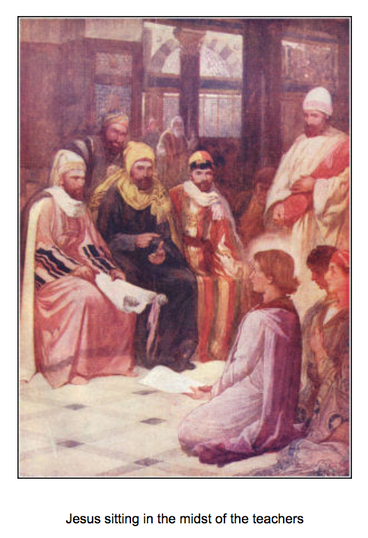

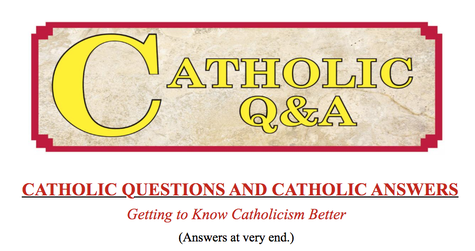

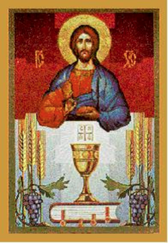


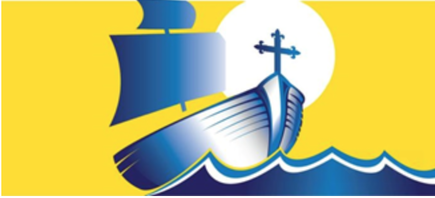

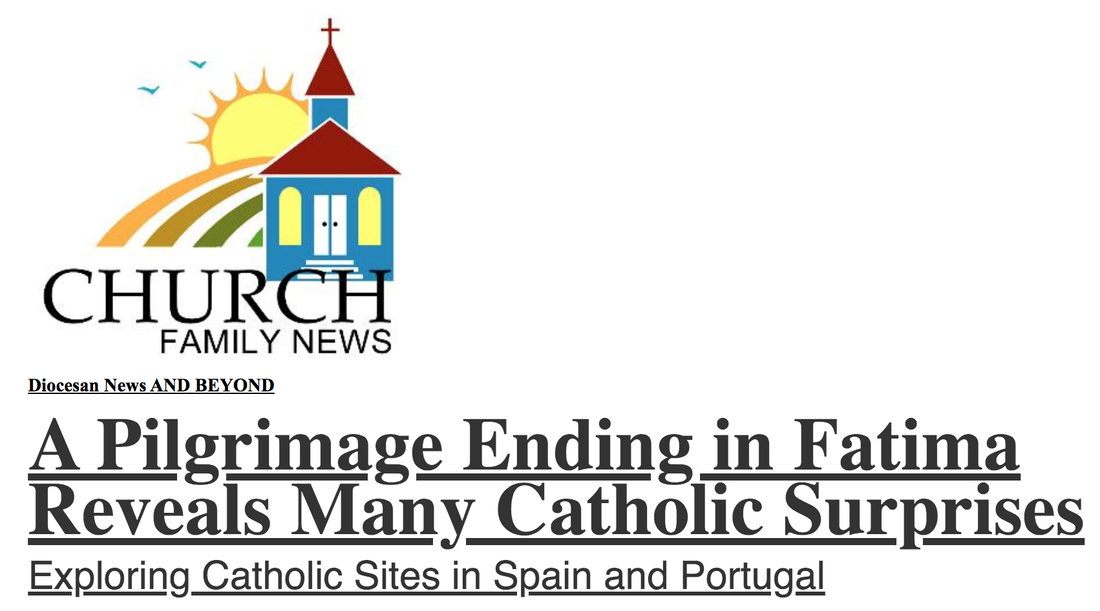
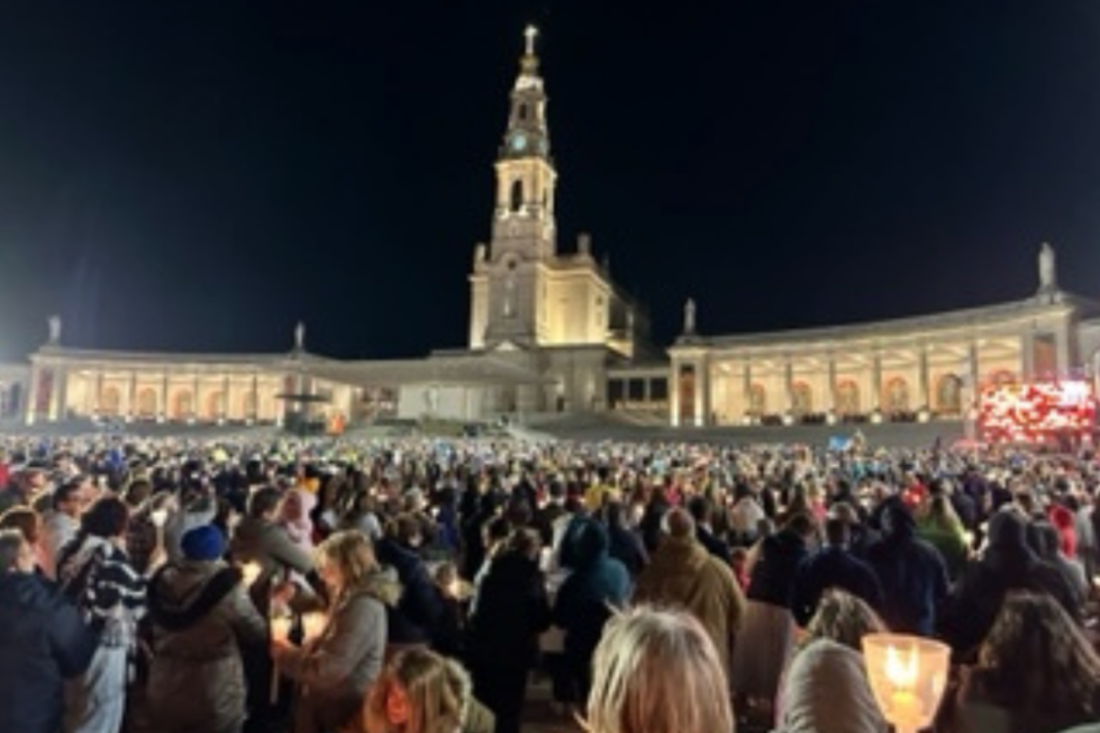
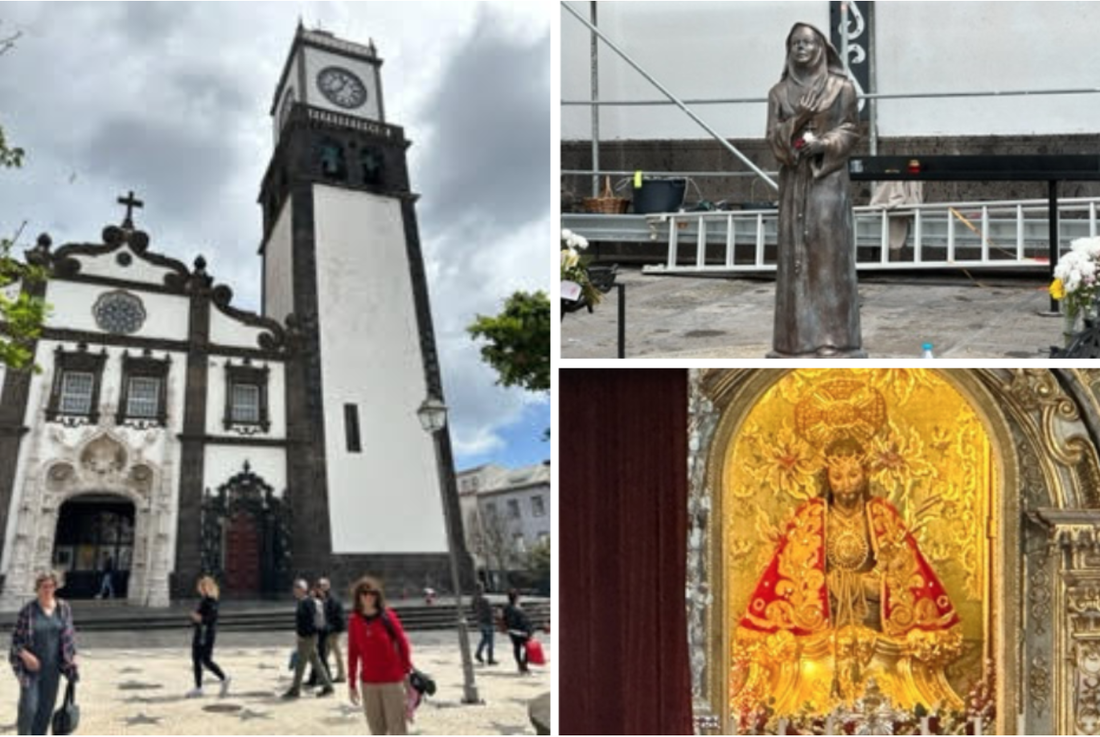
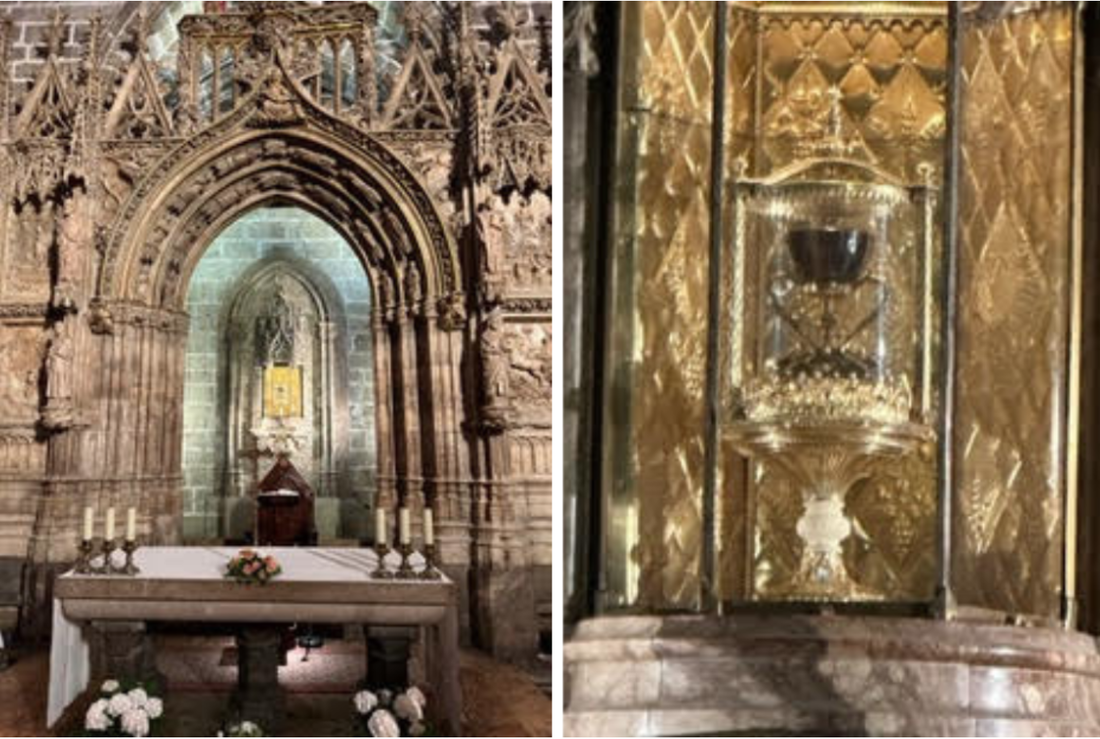
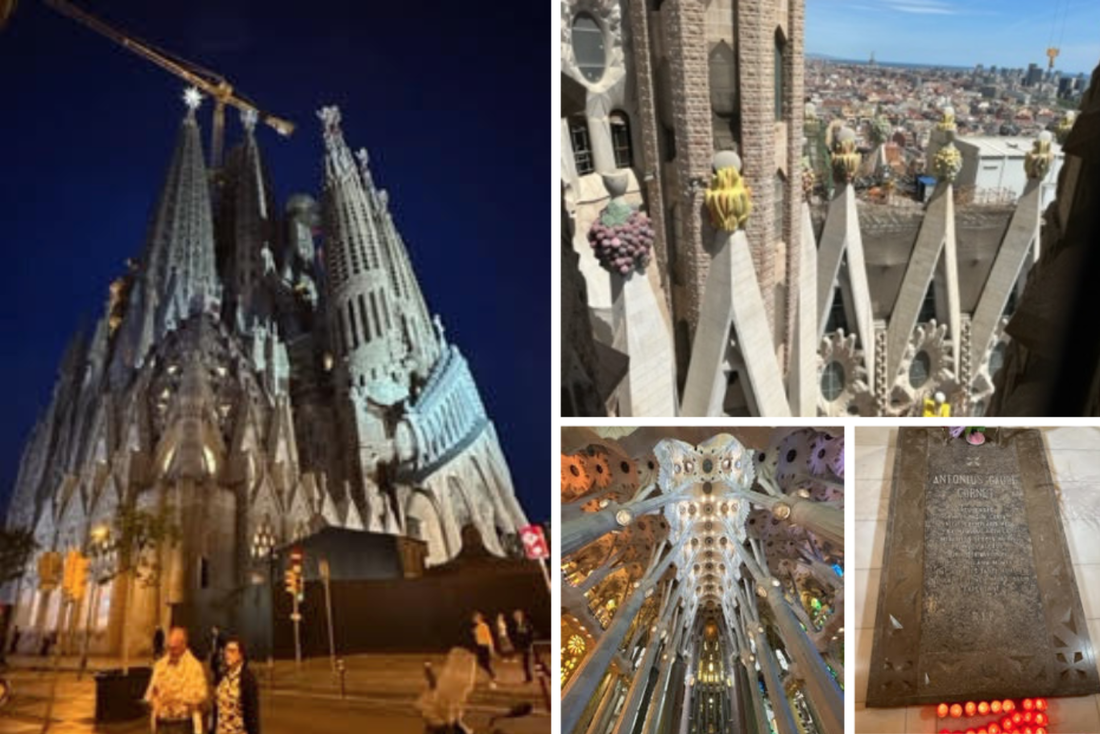
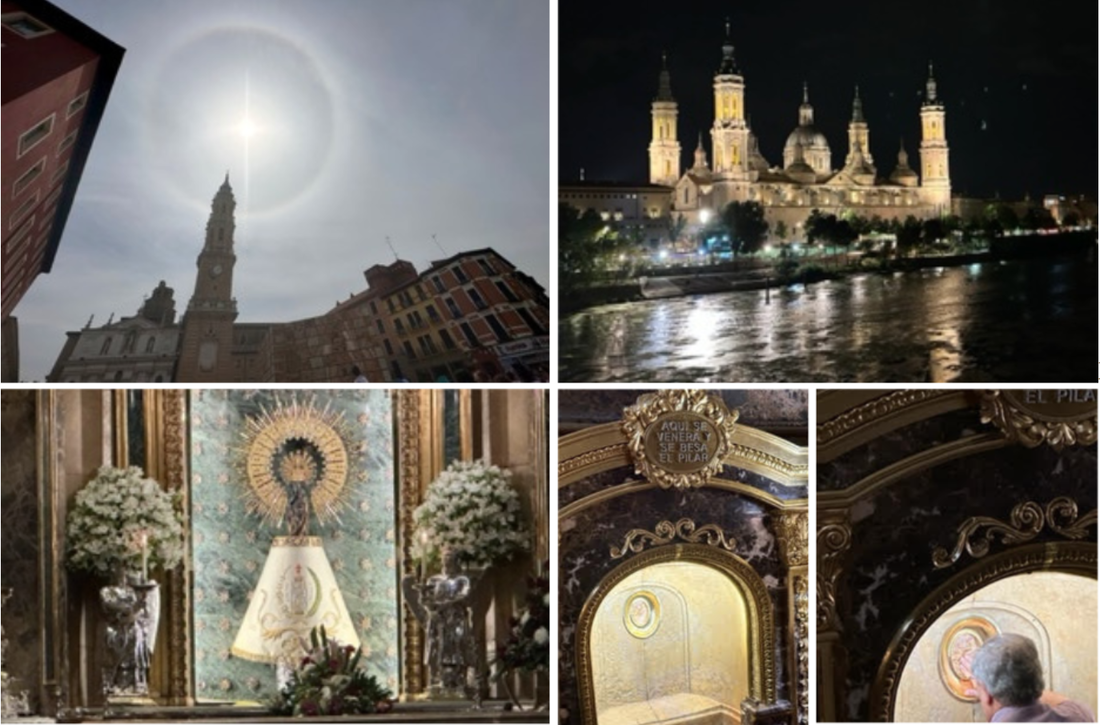
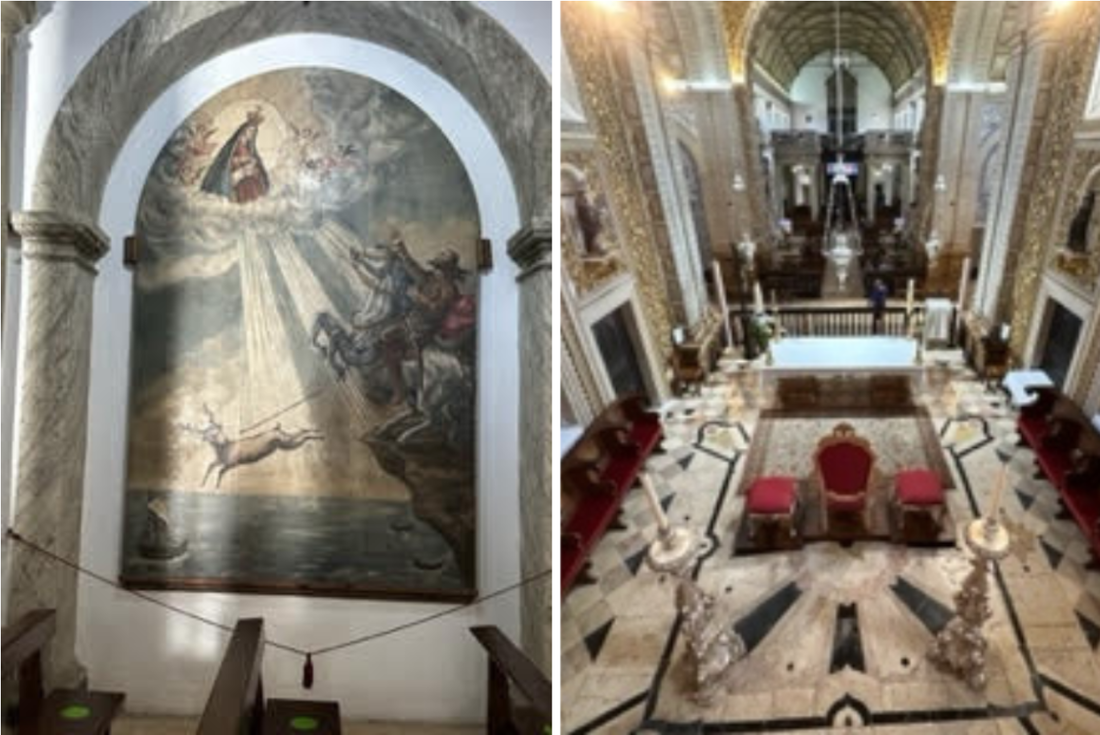
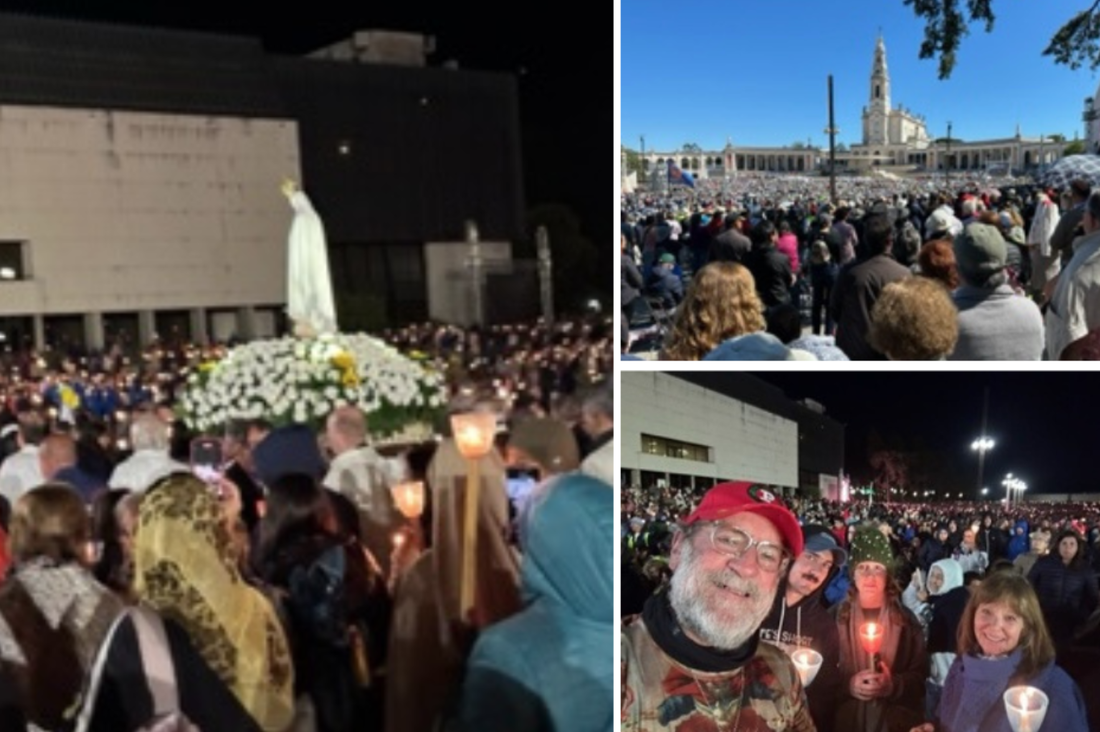
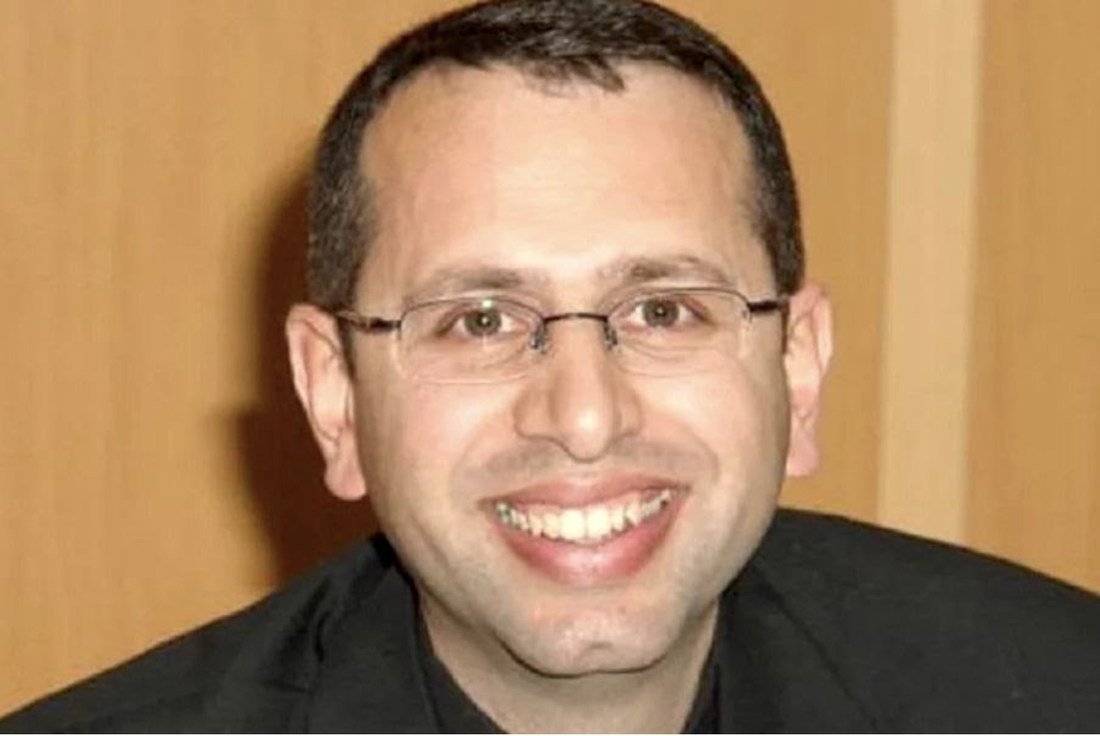
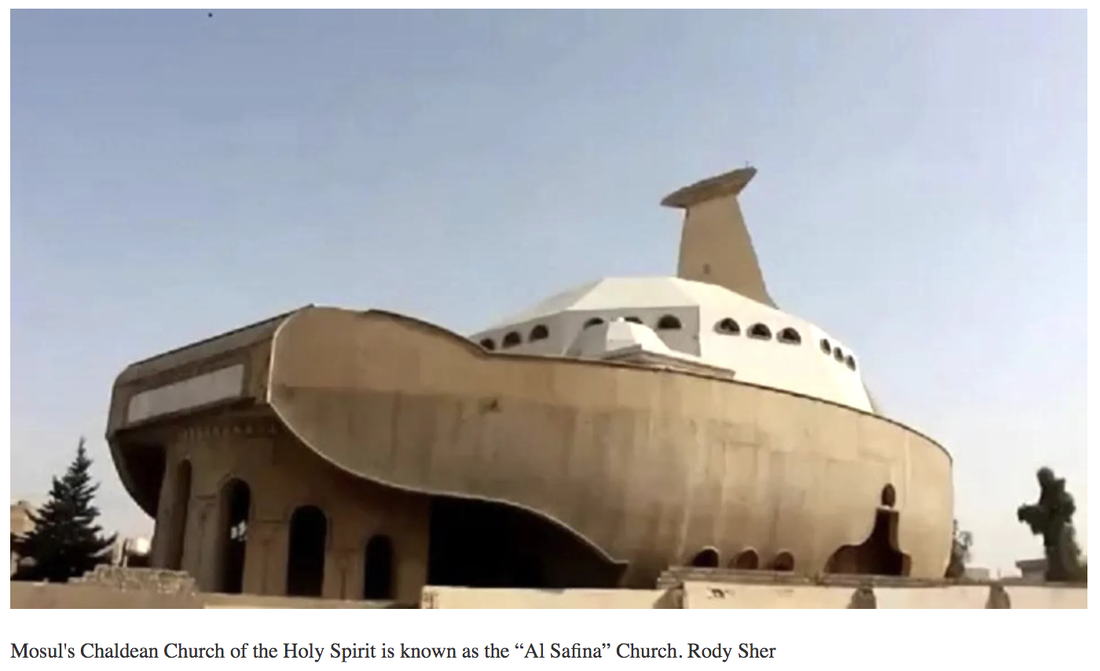

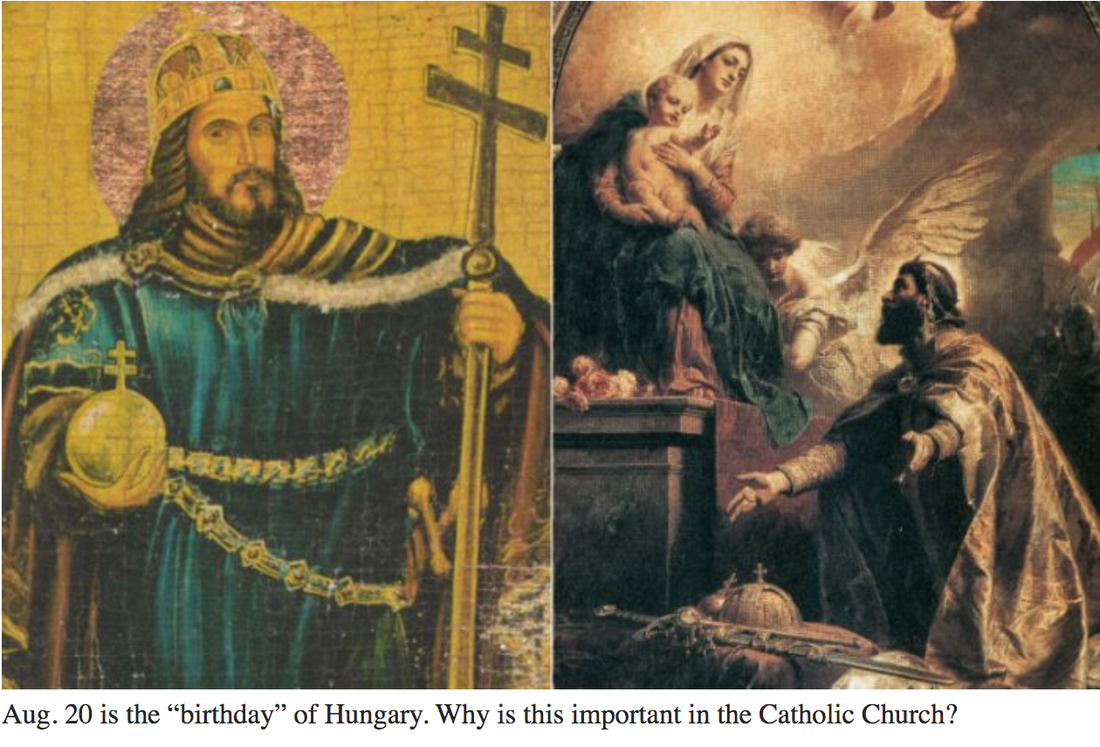
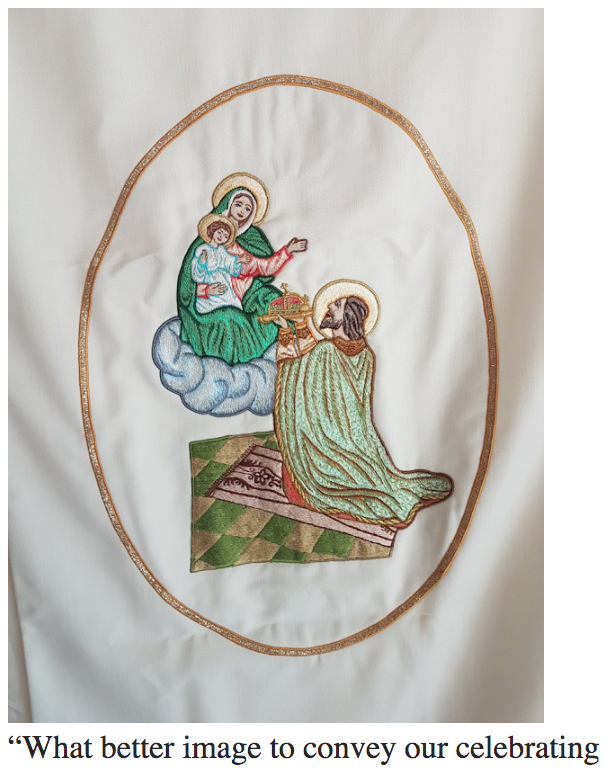


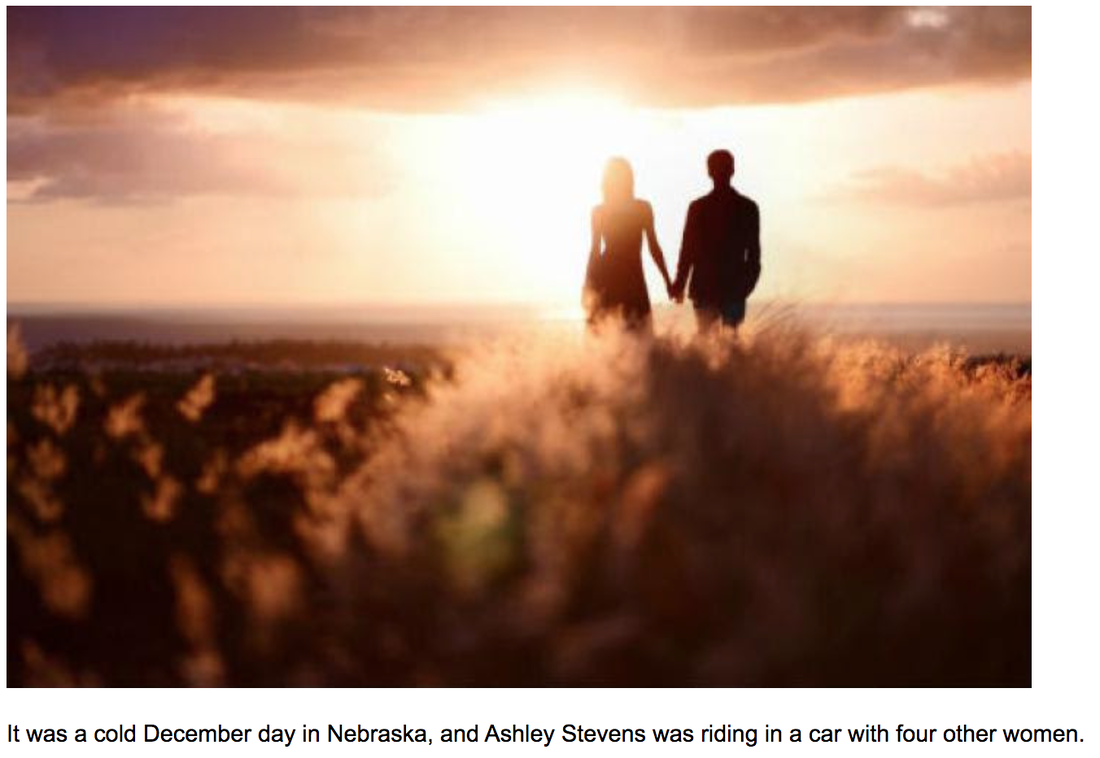

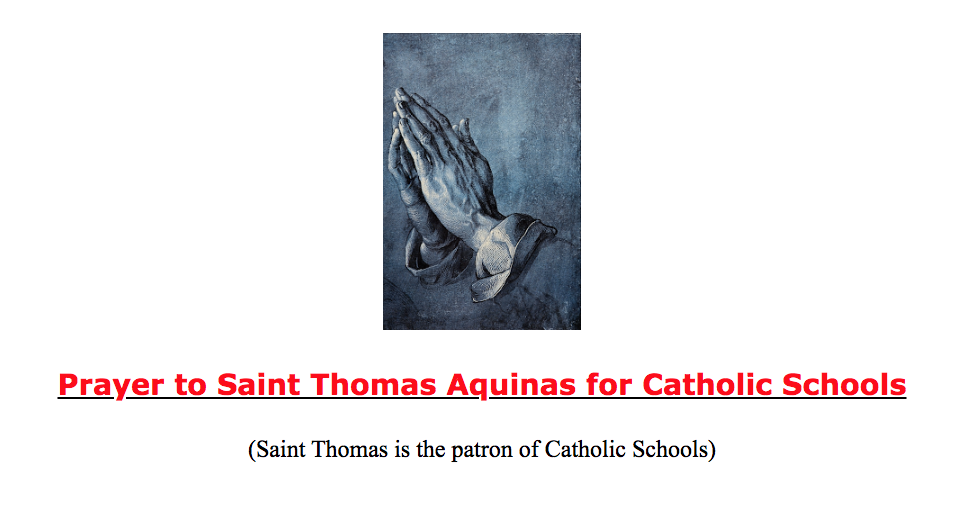

 RSS Feed
RSS Feed
